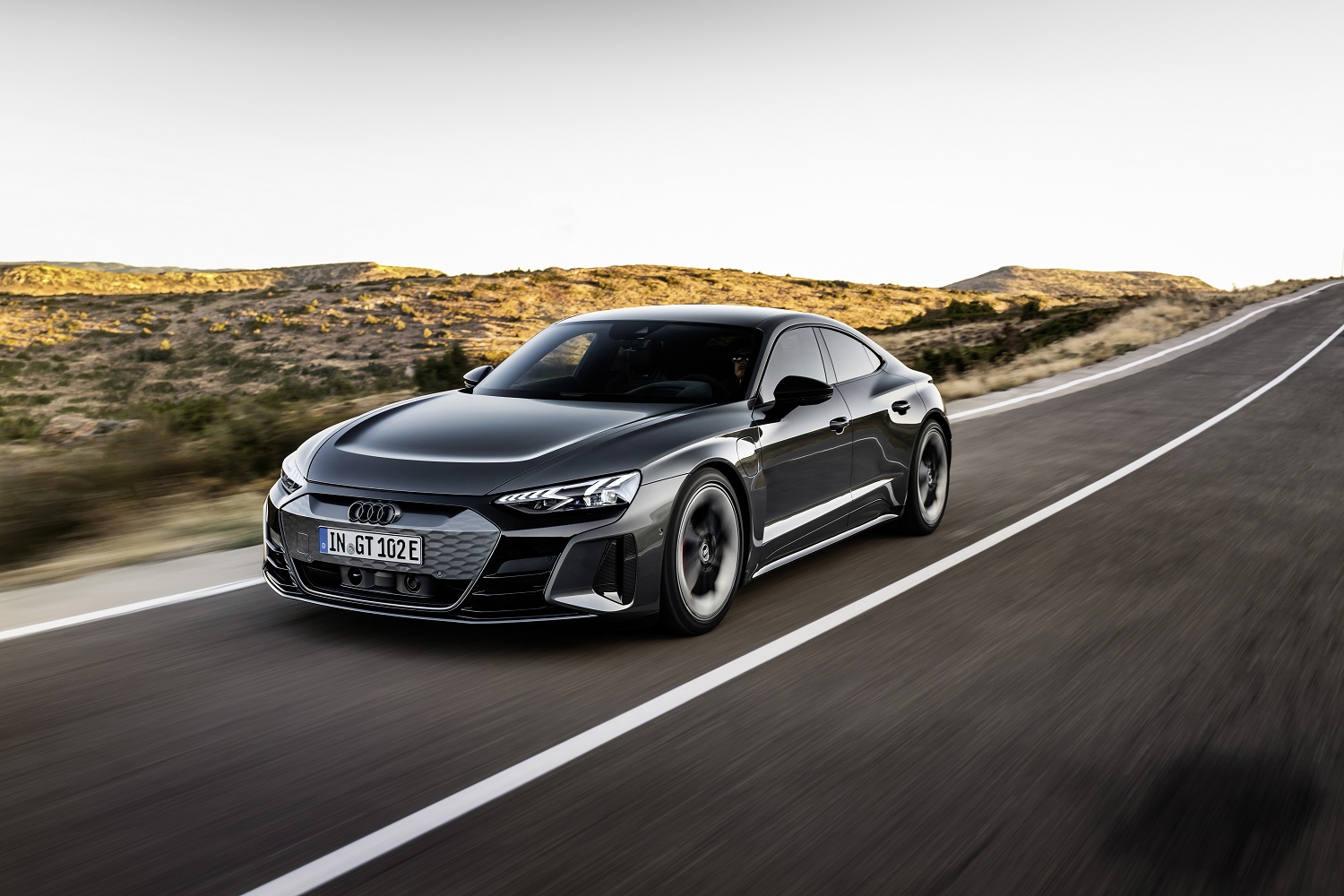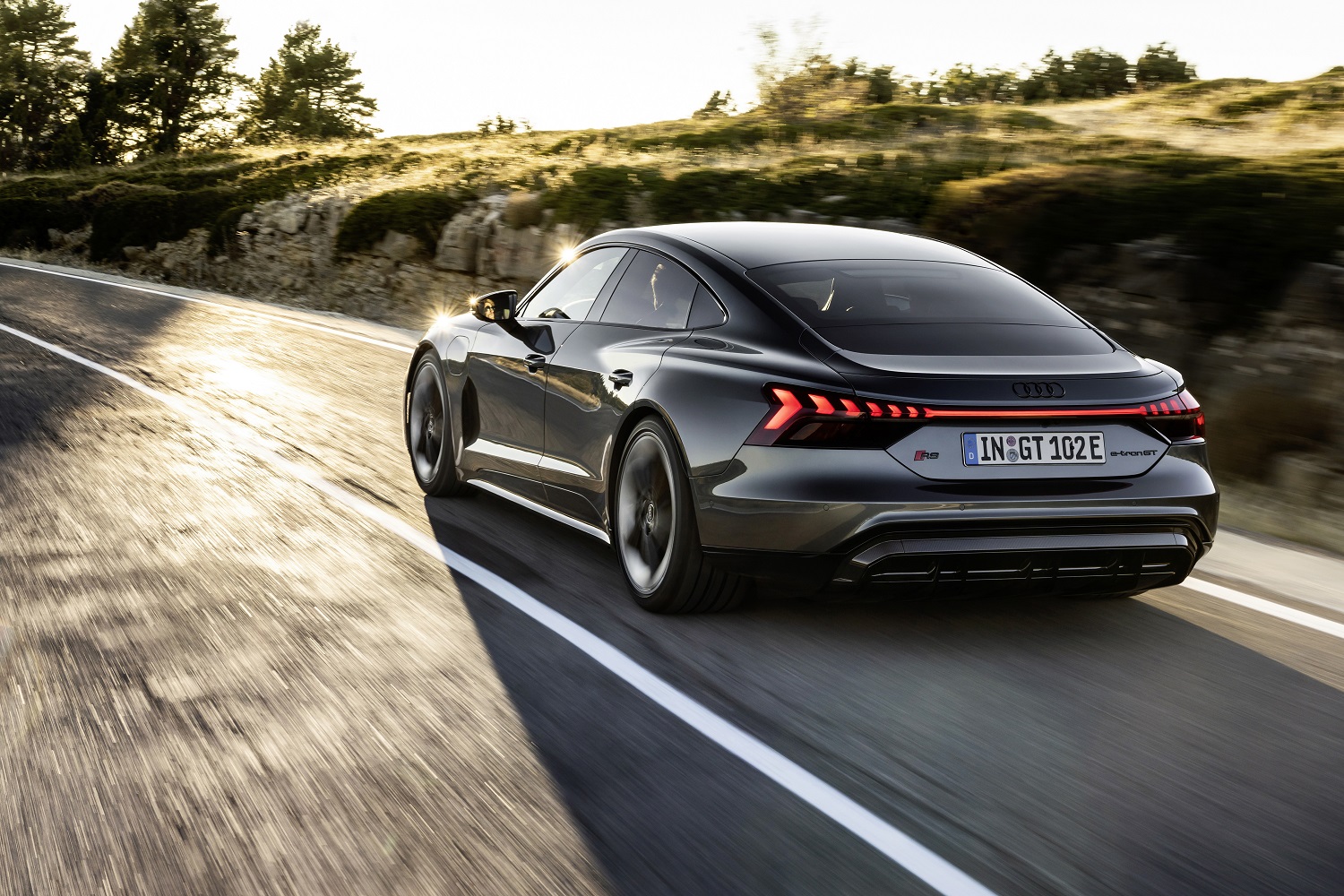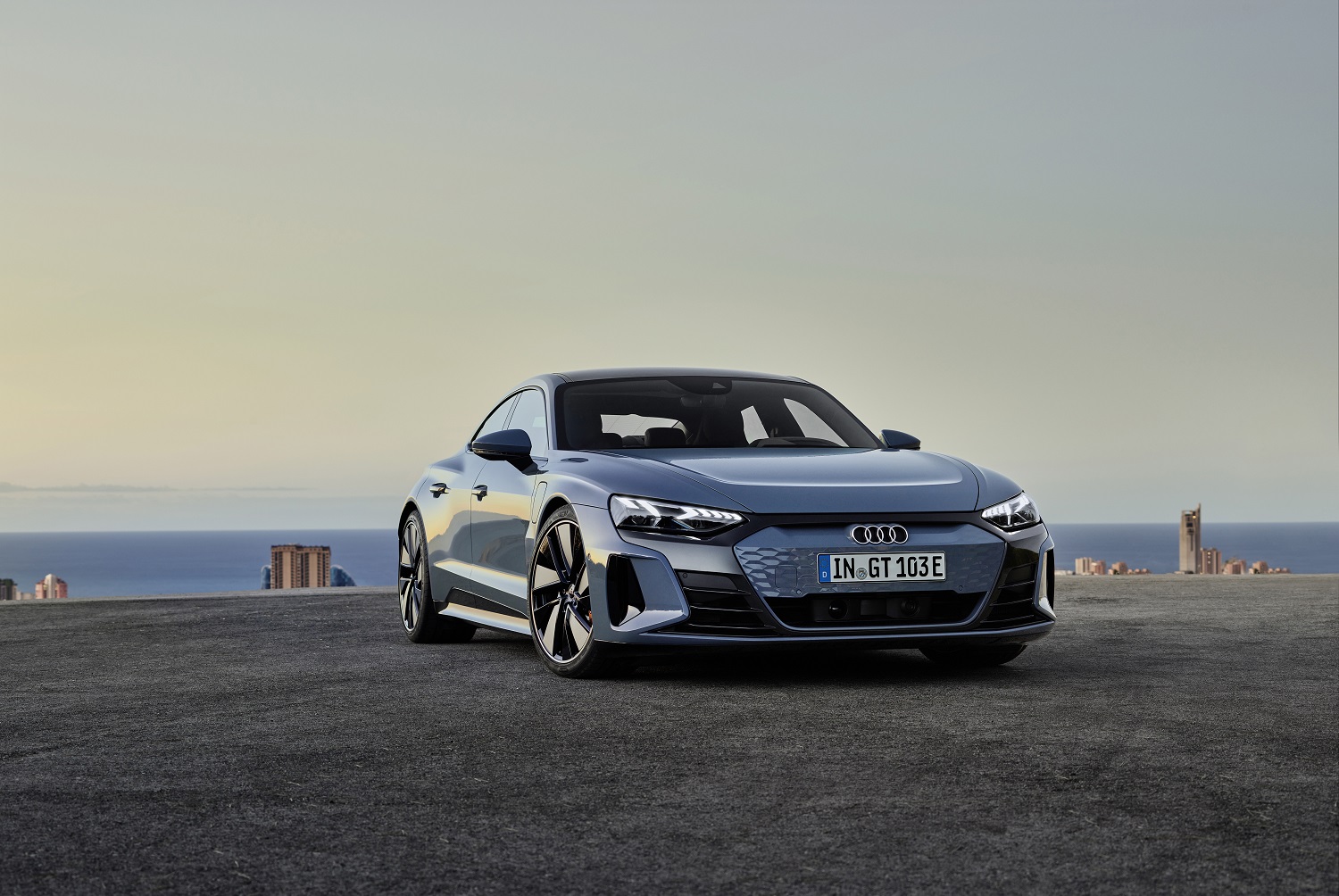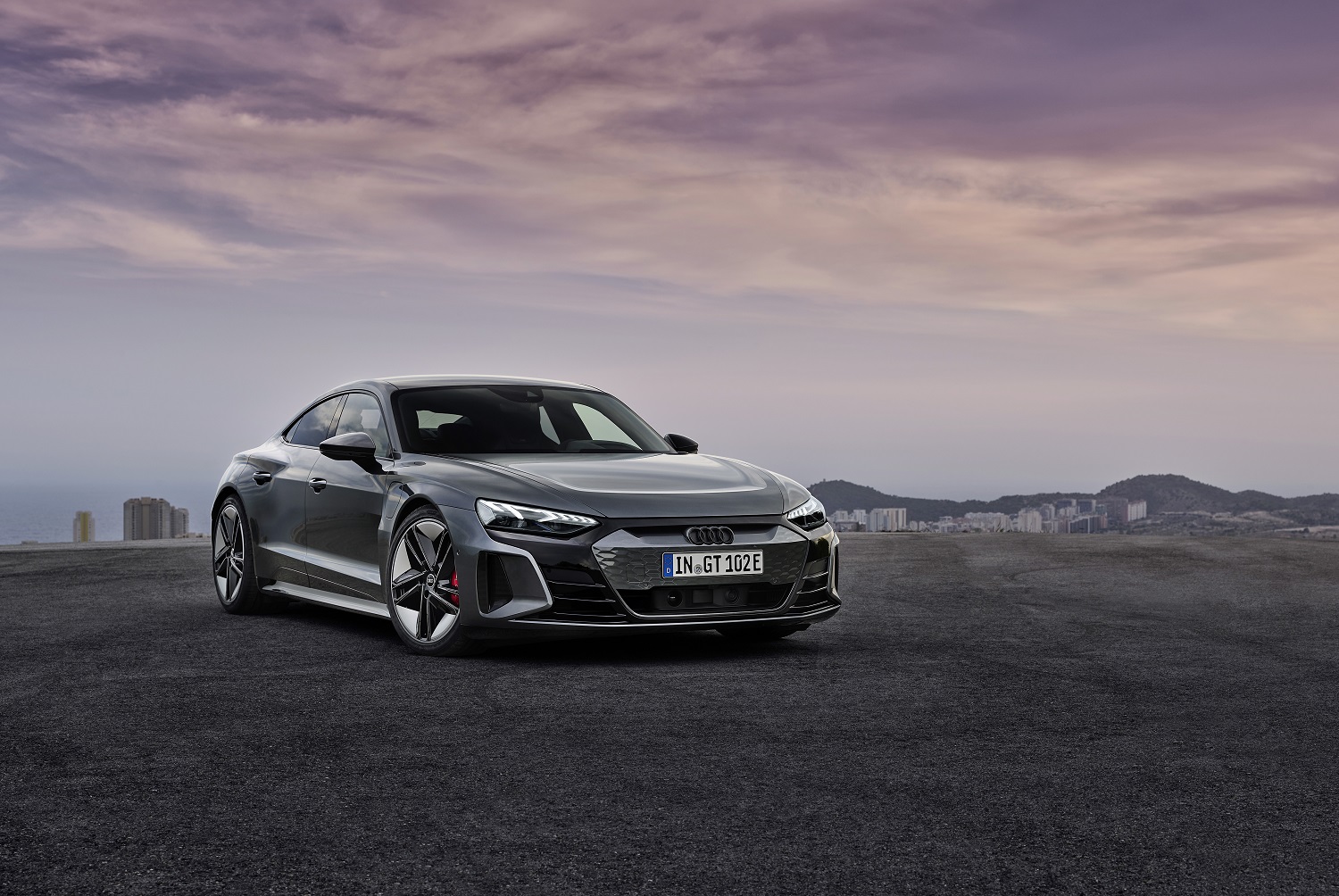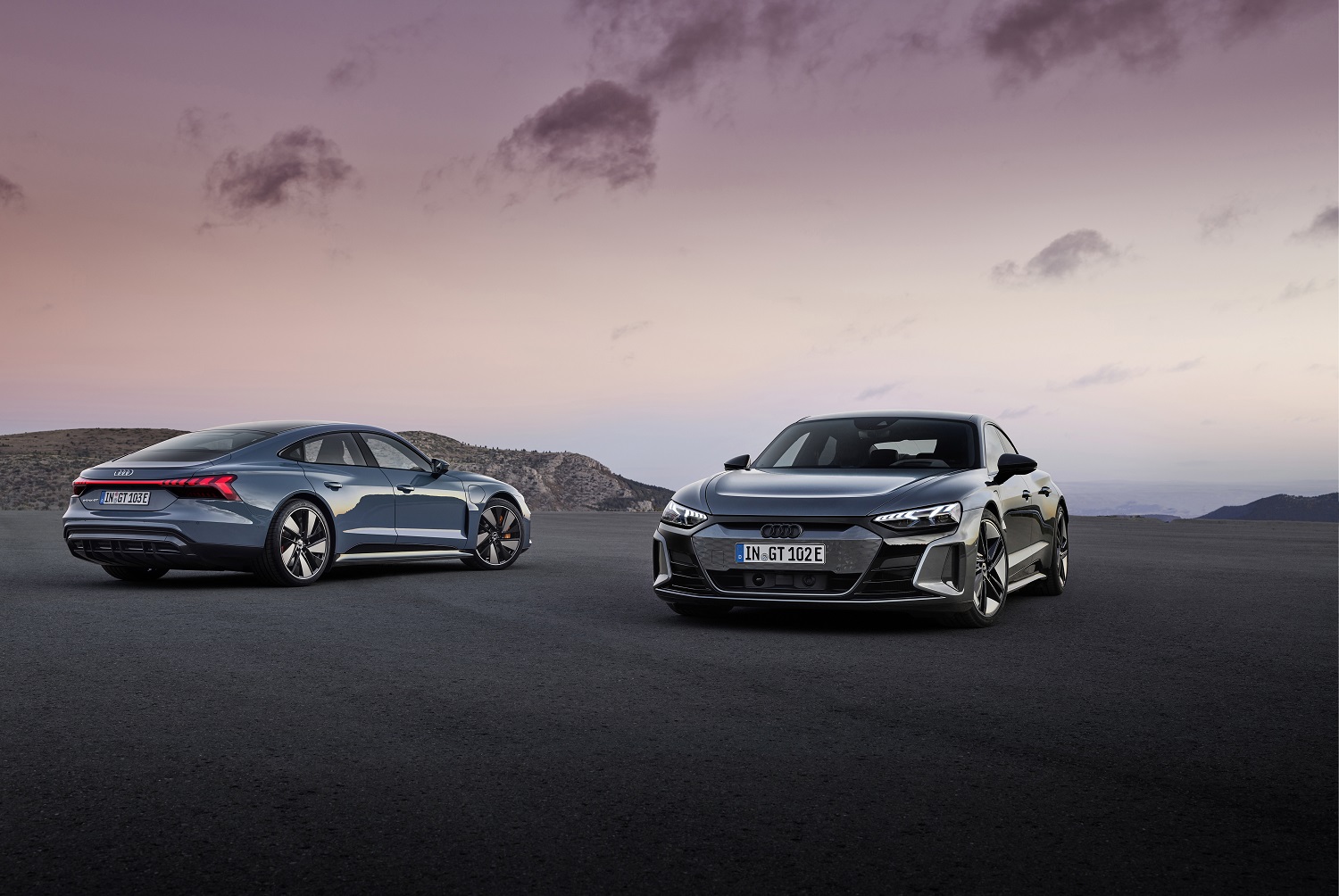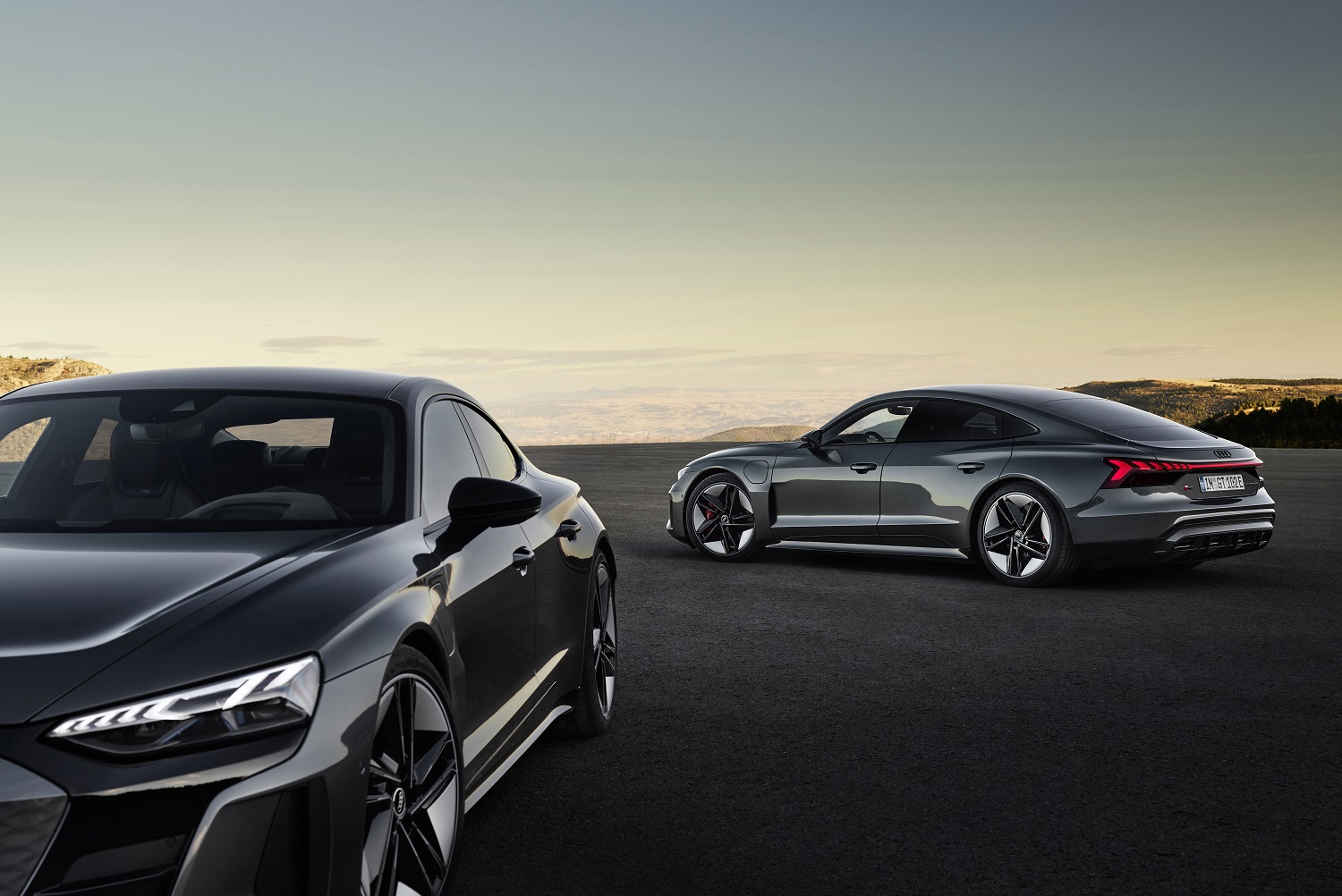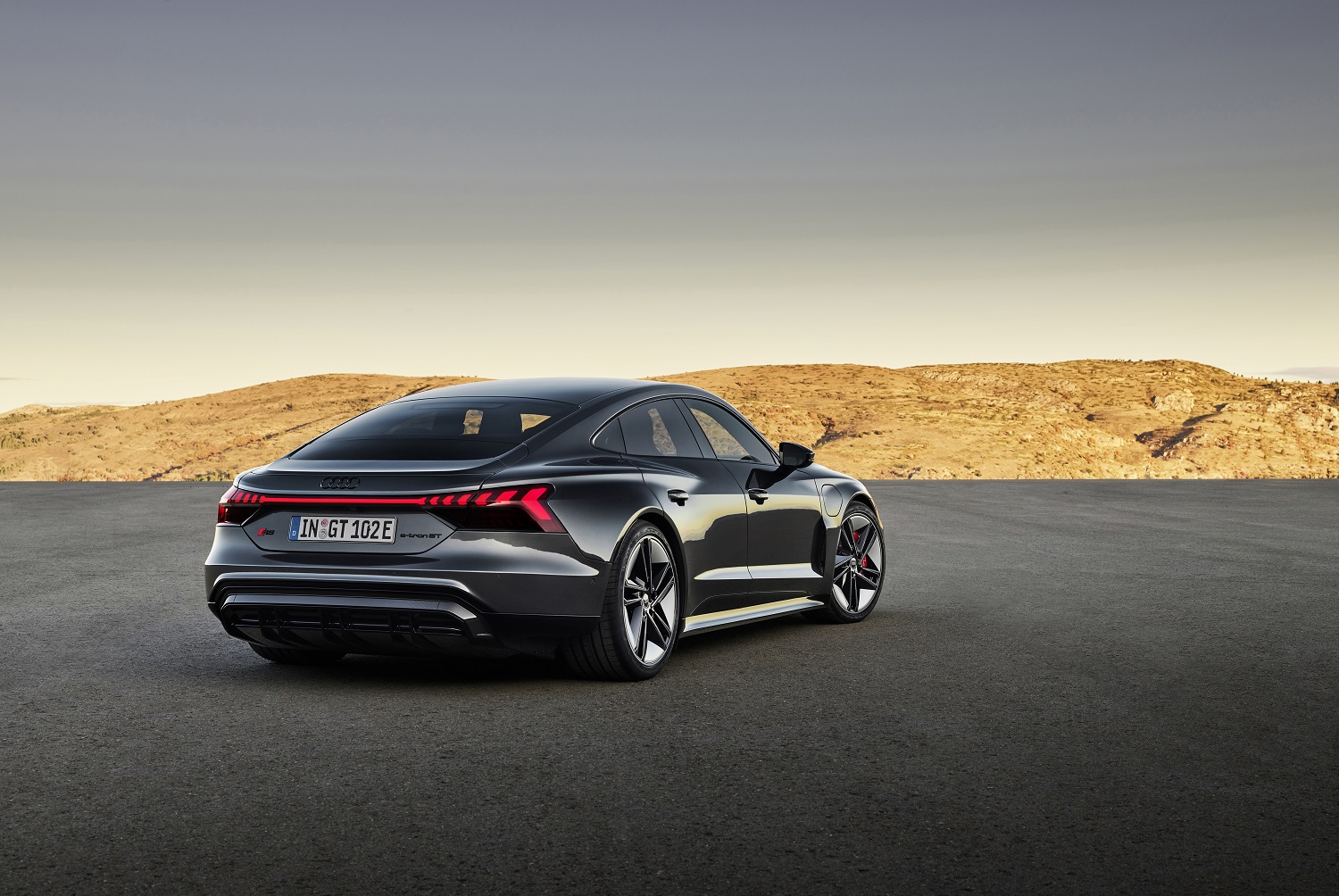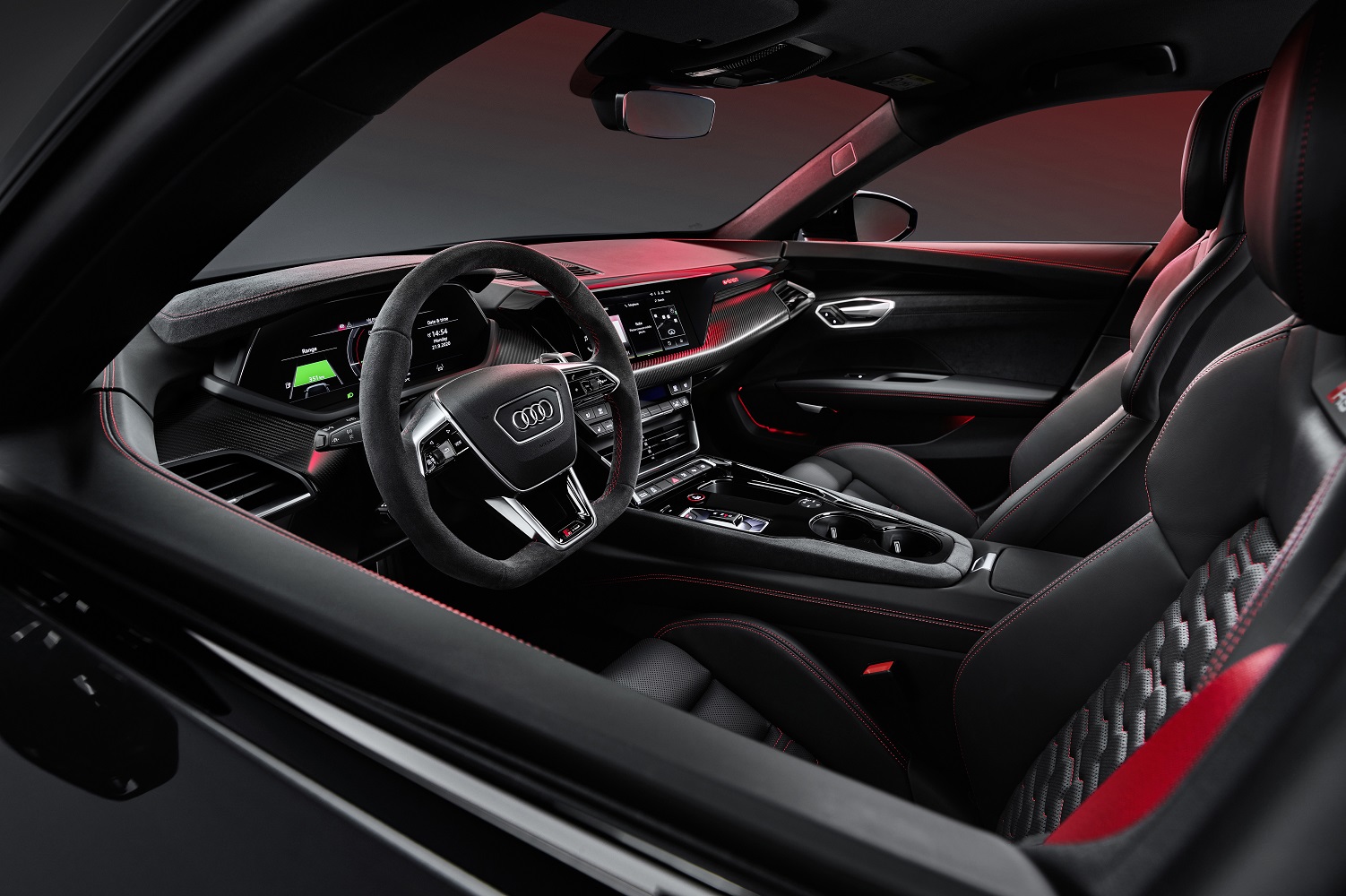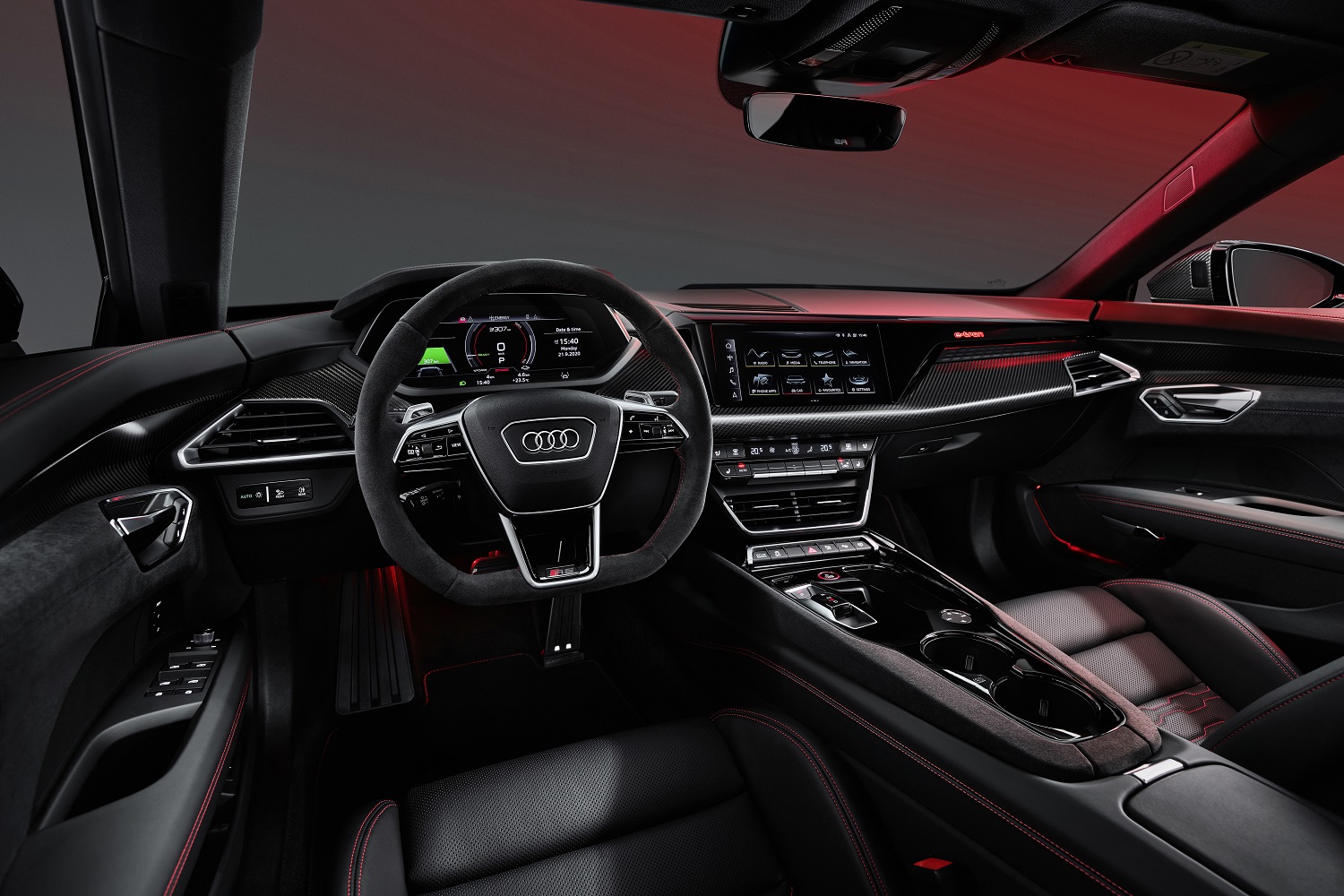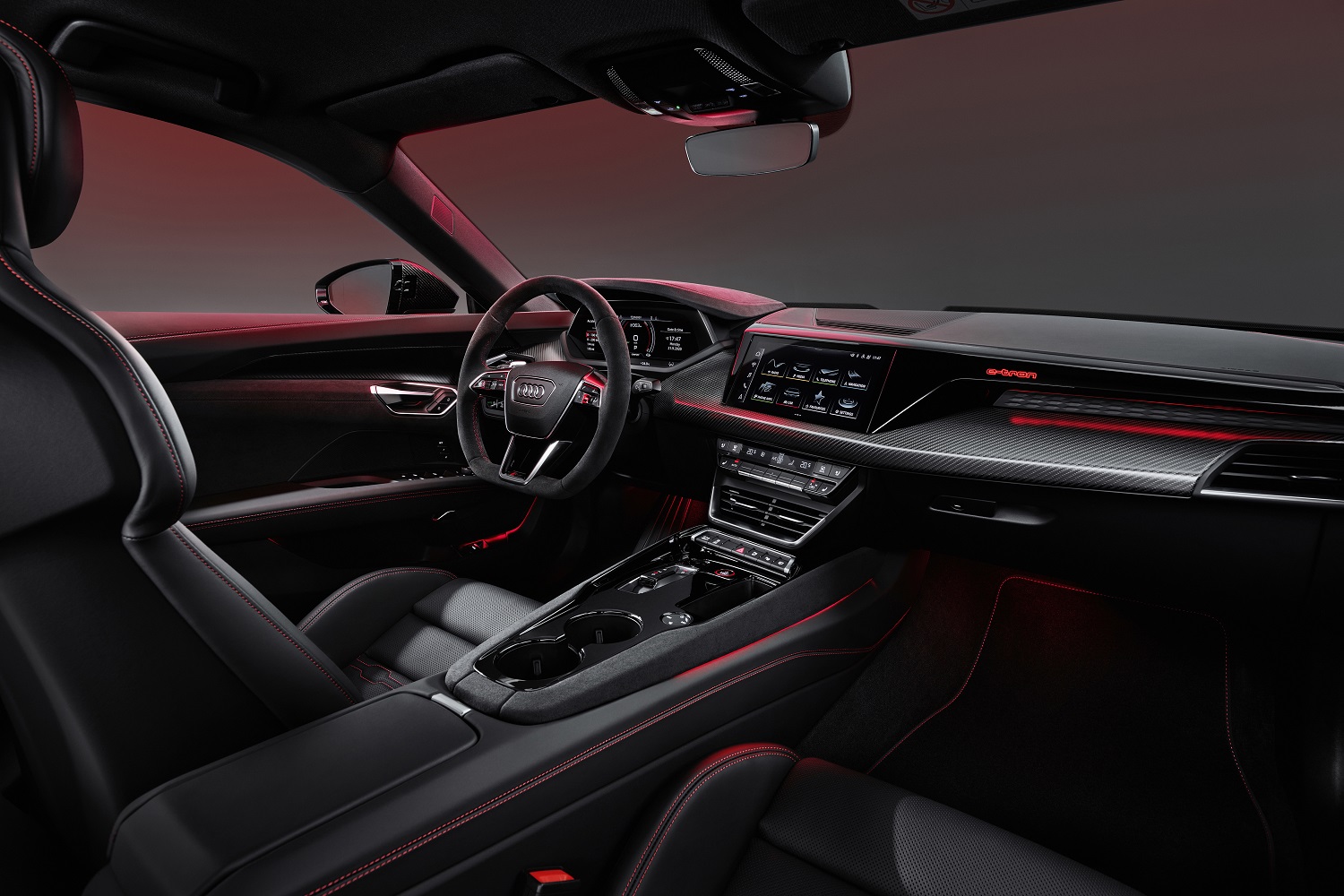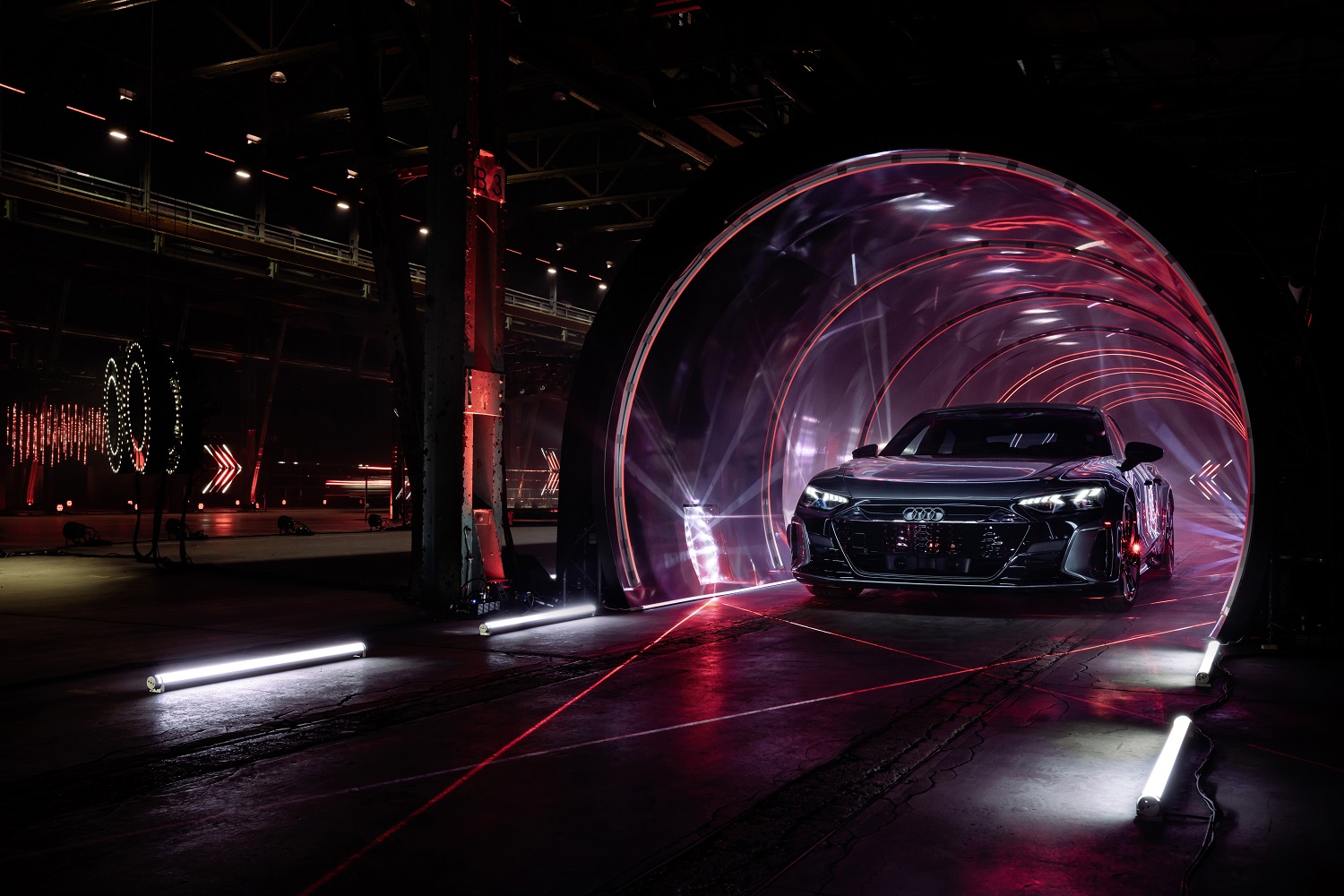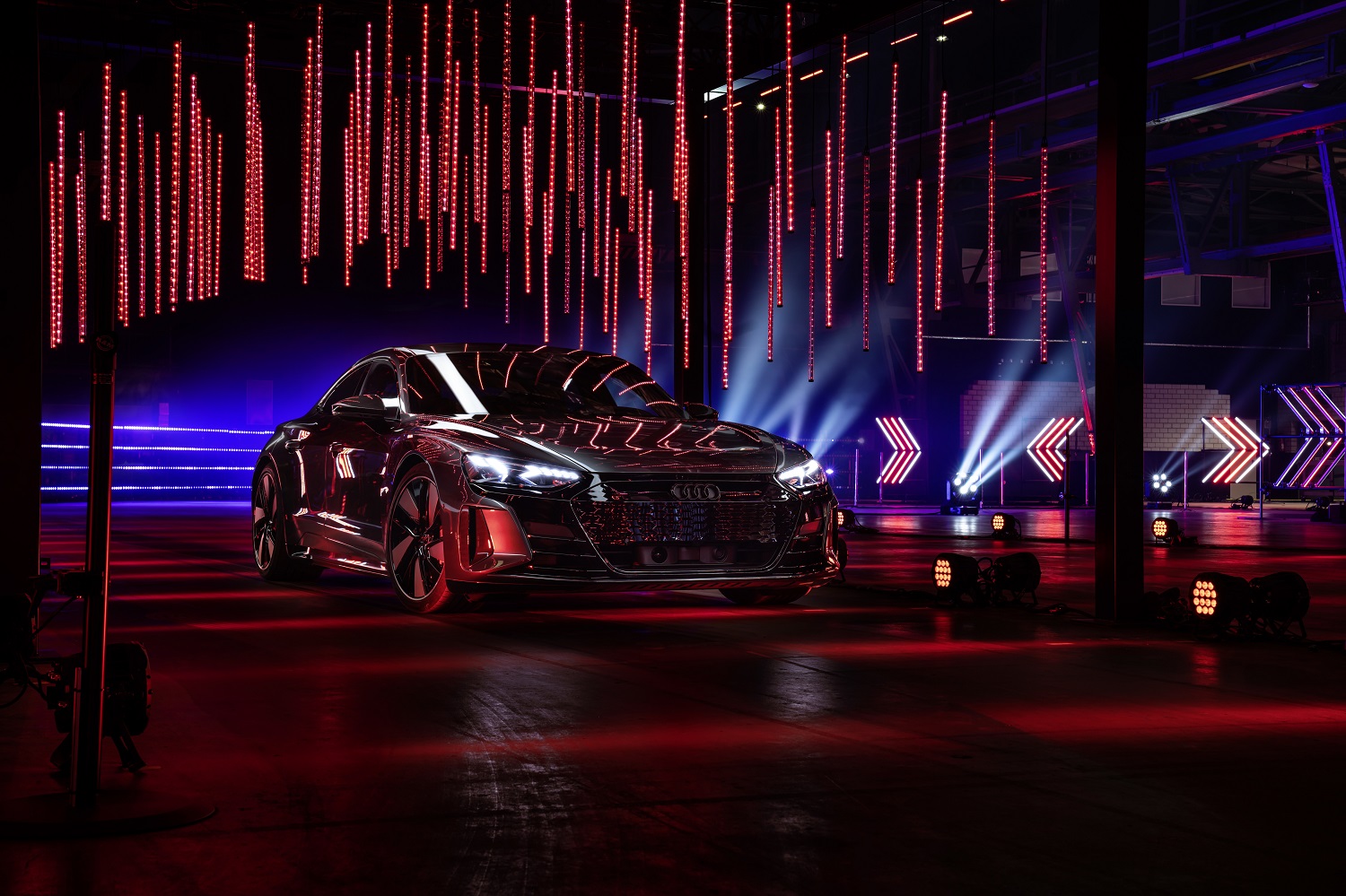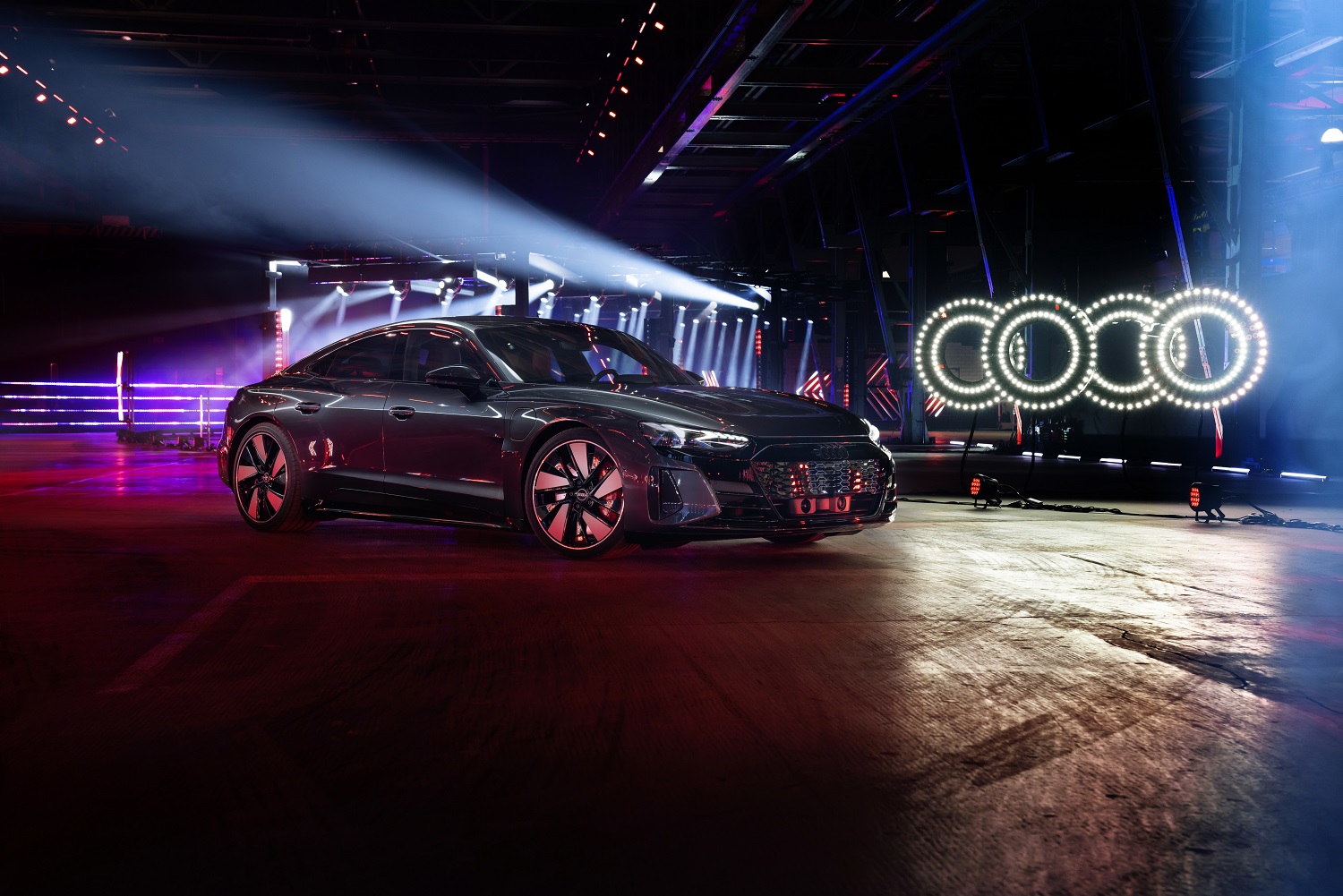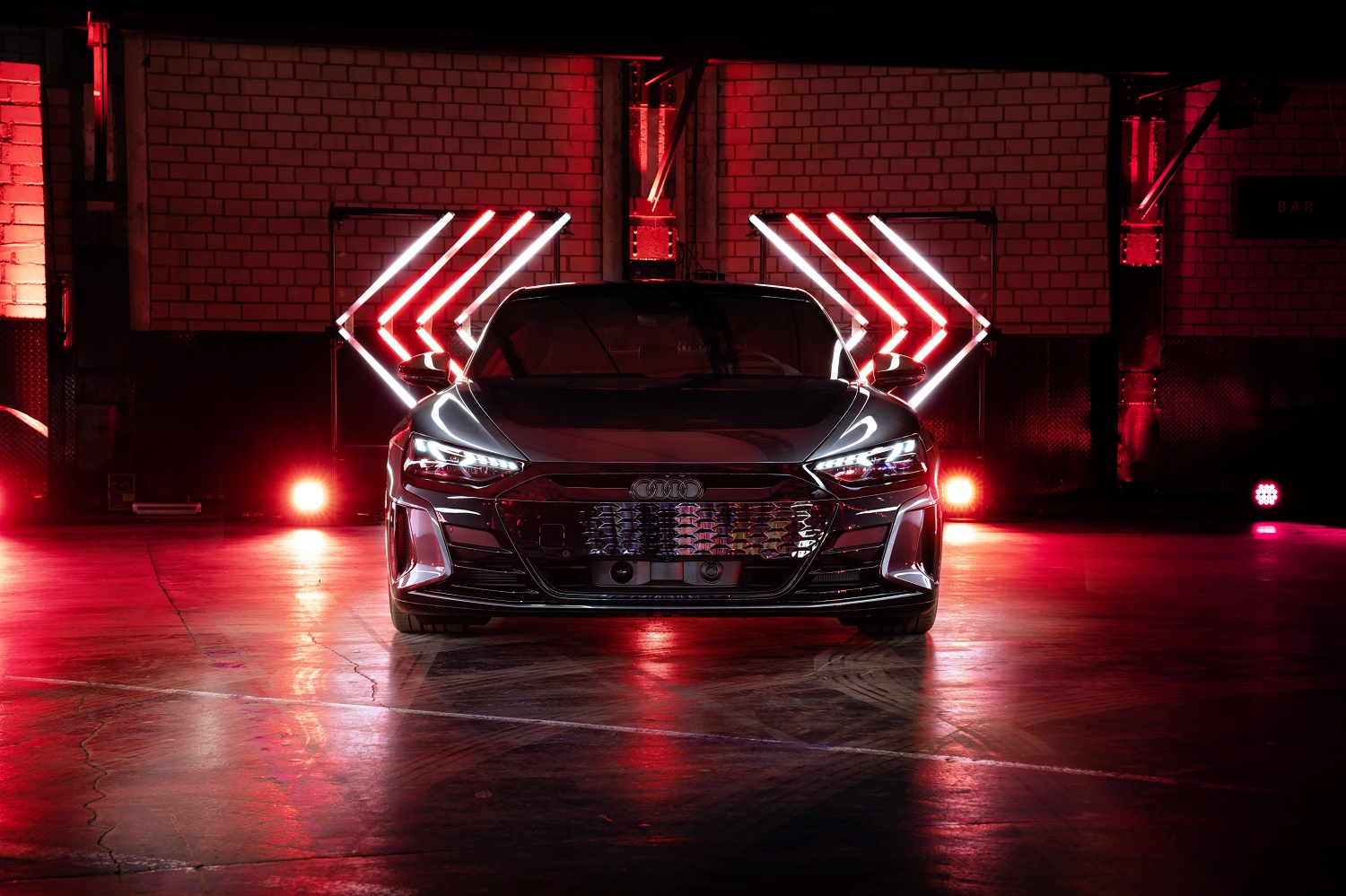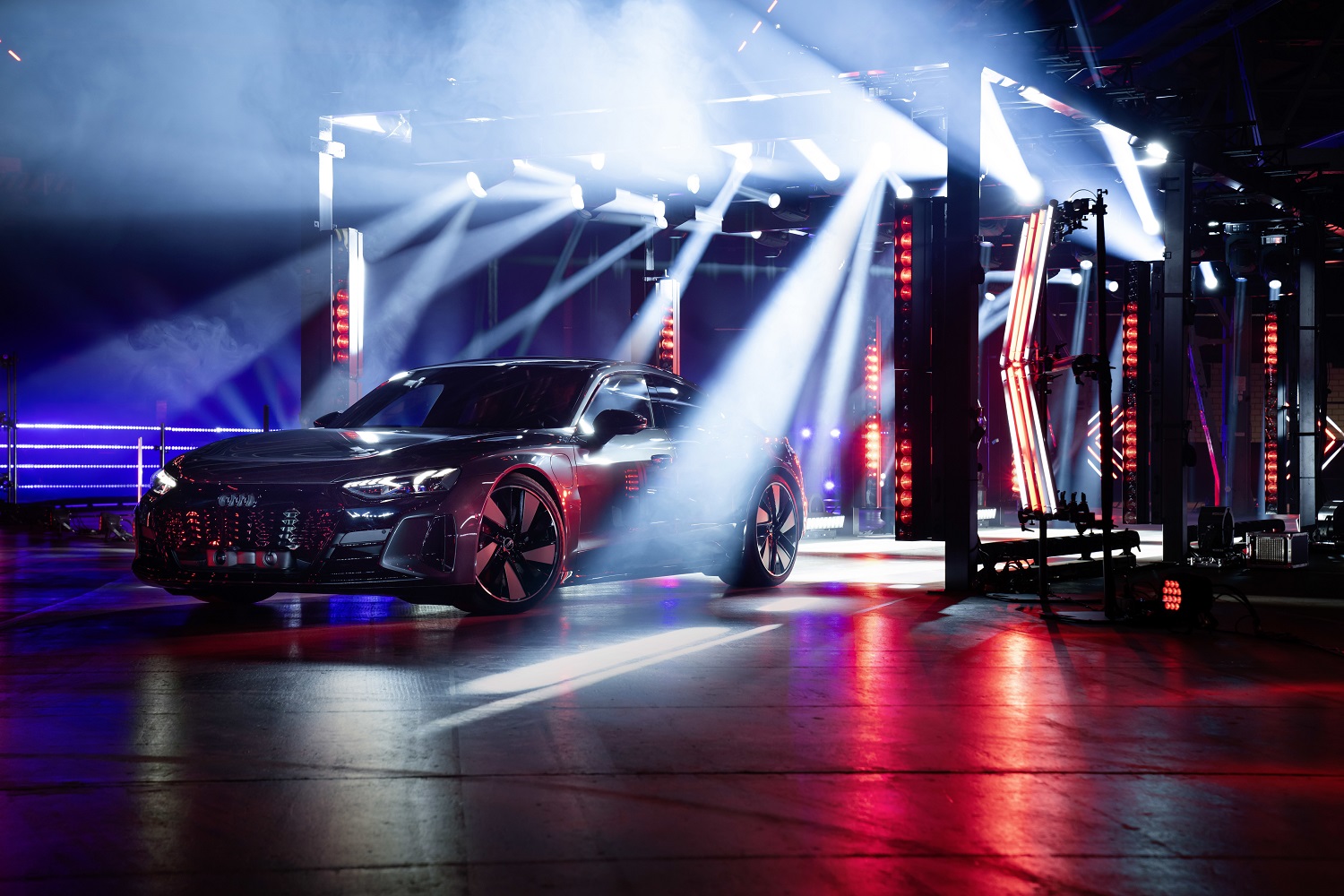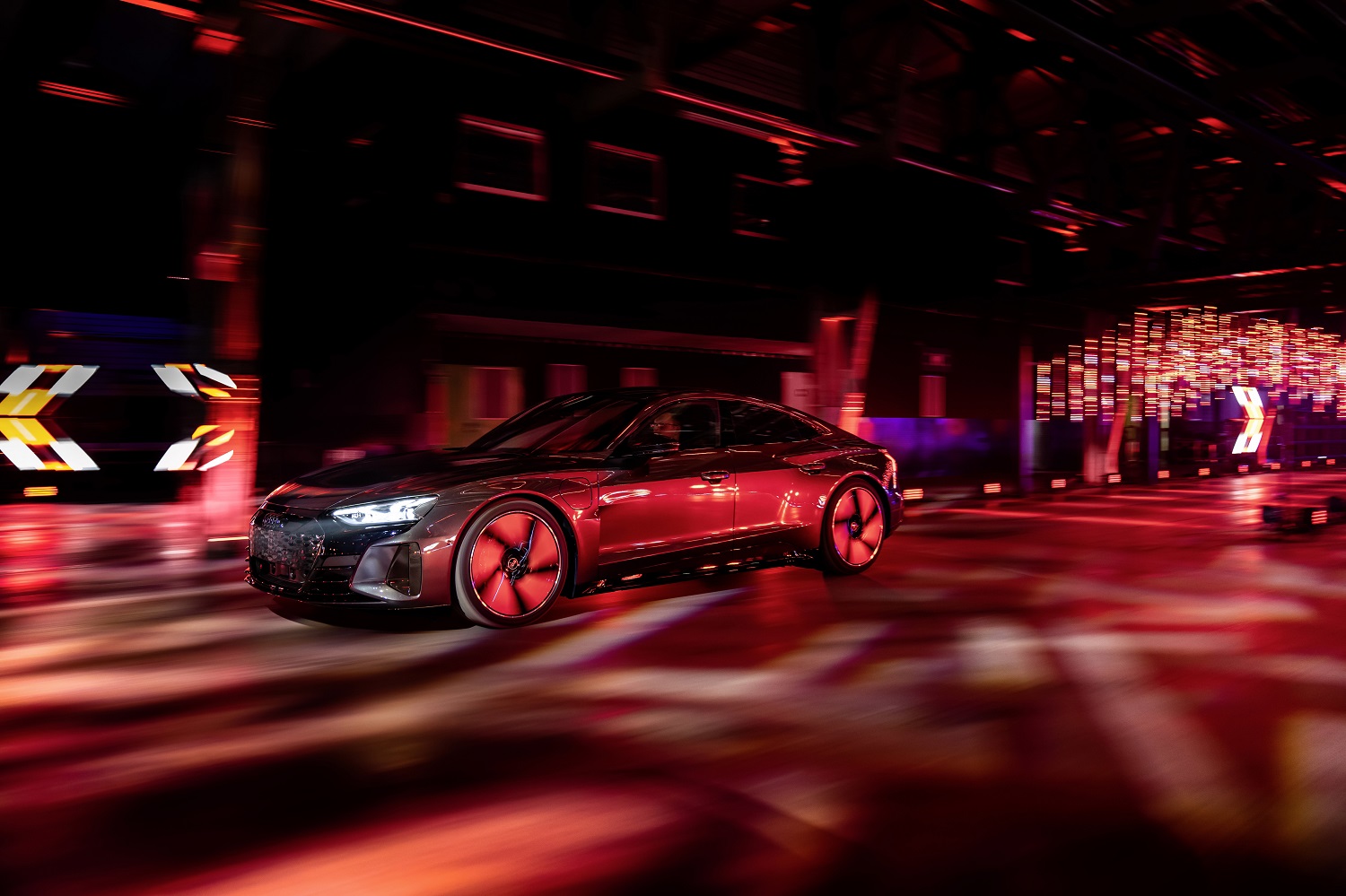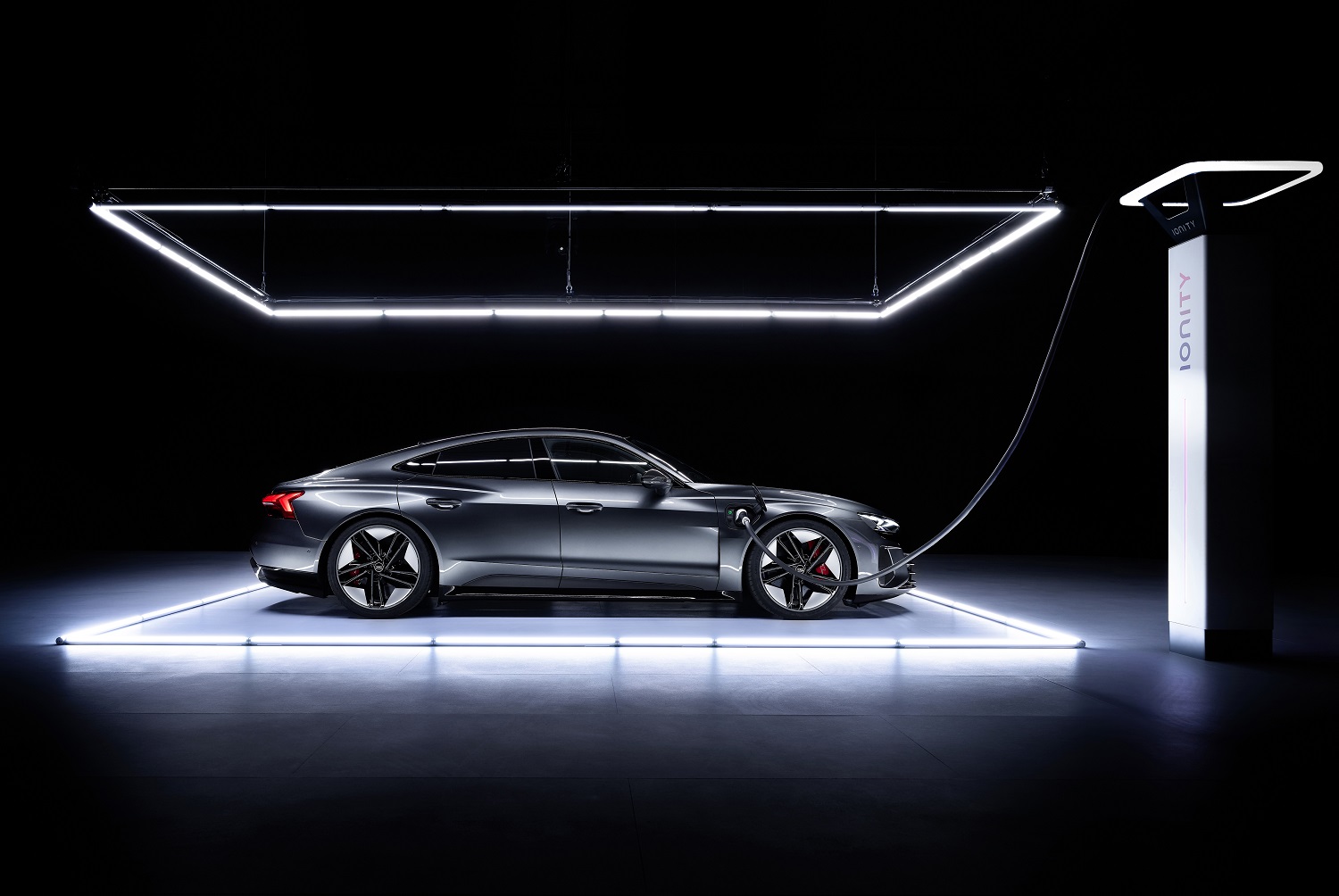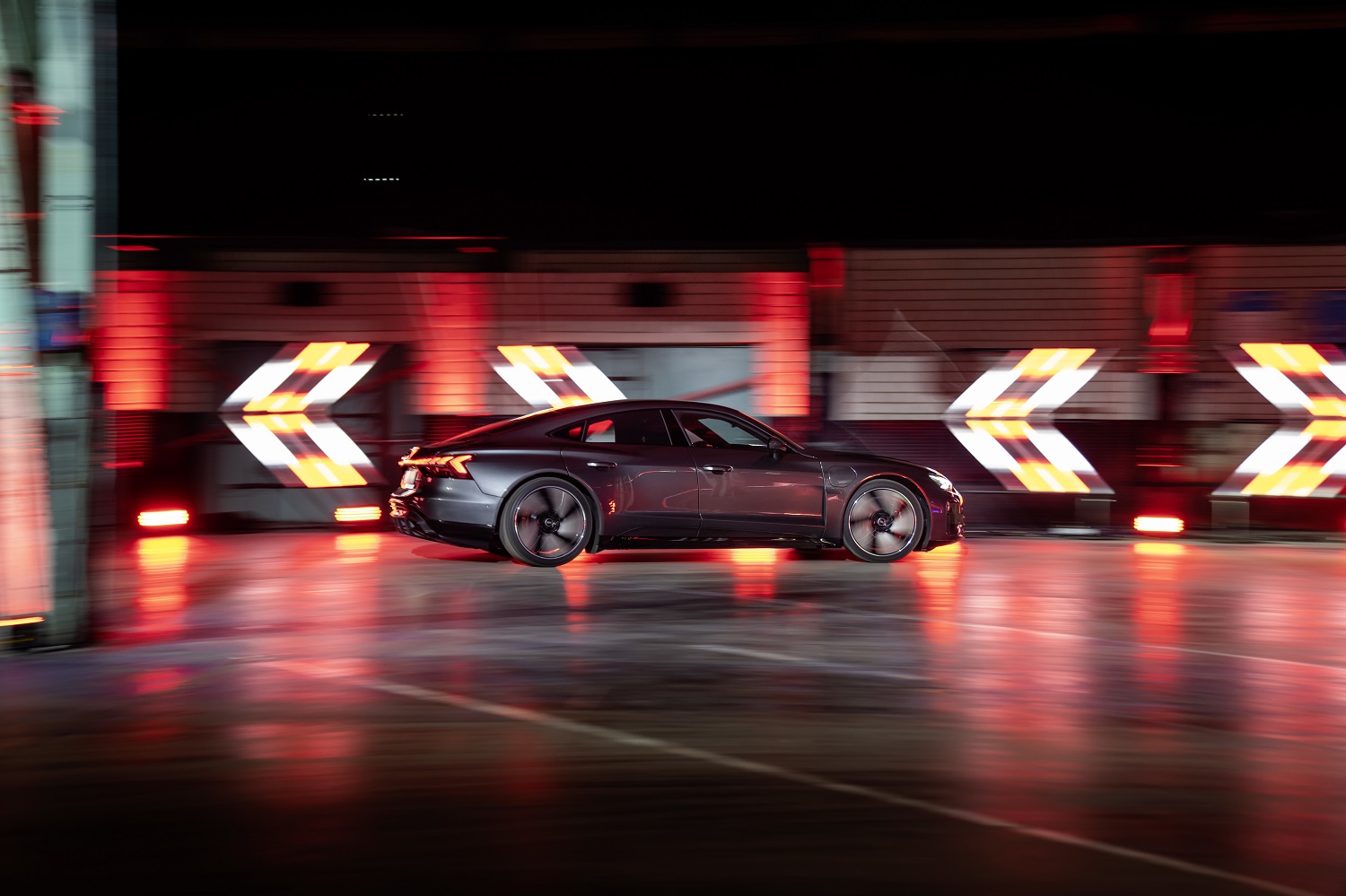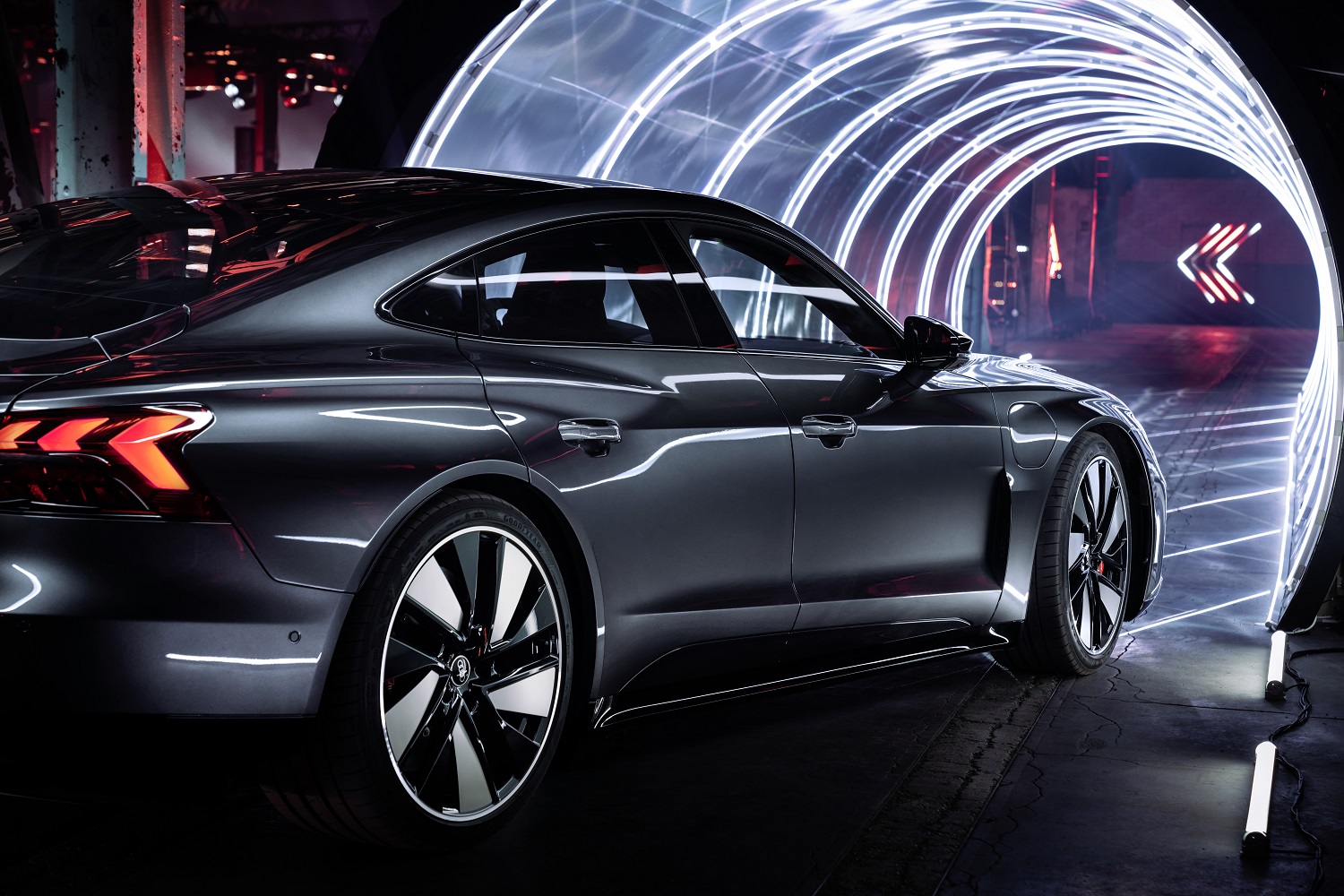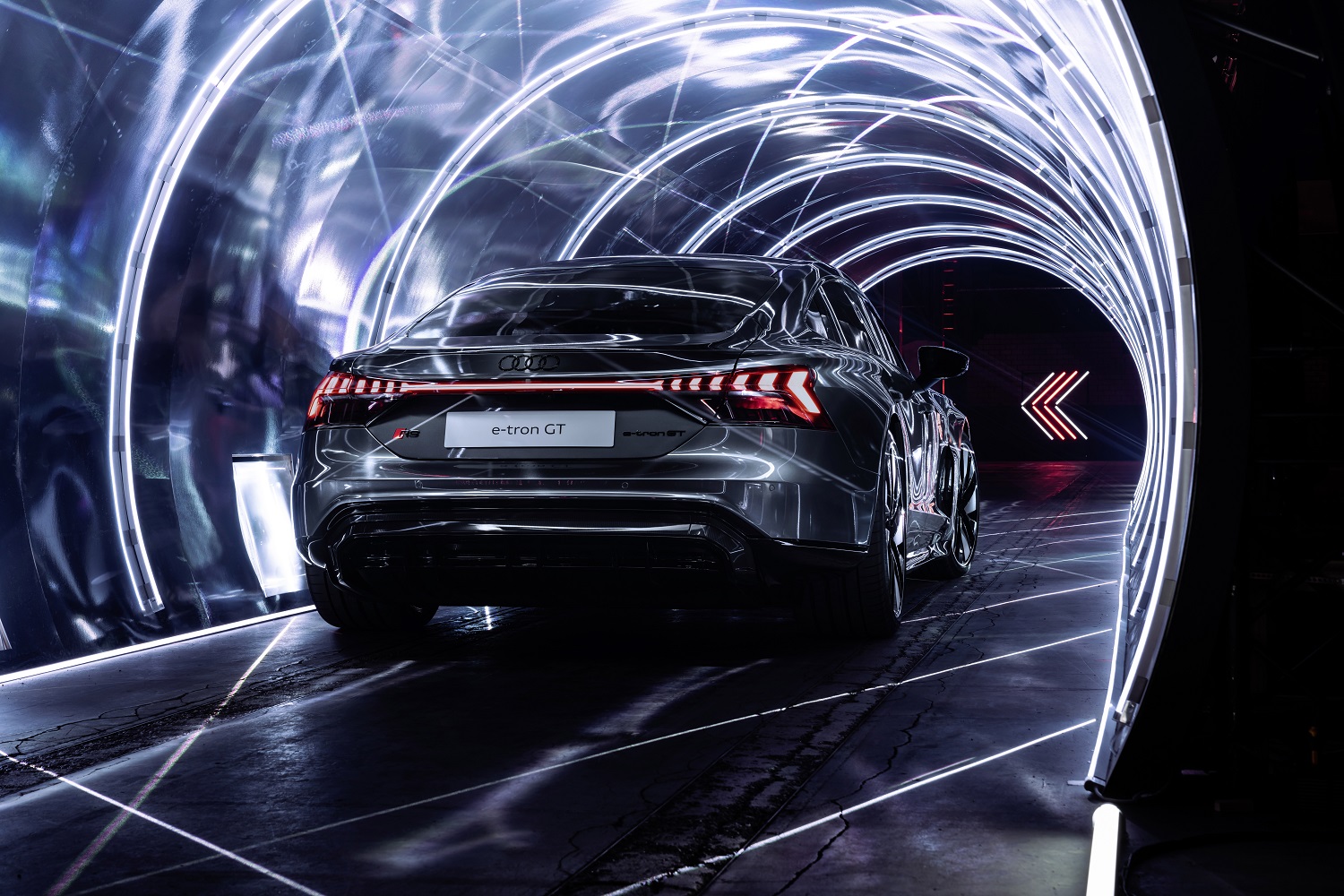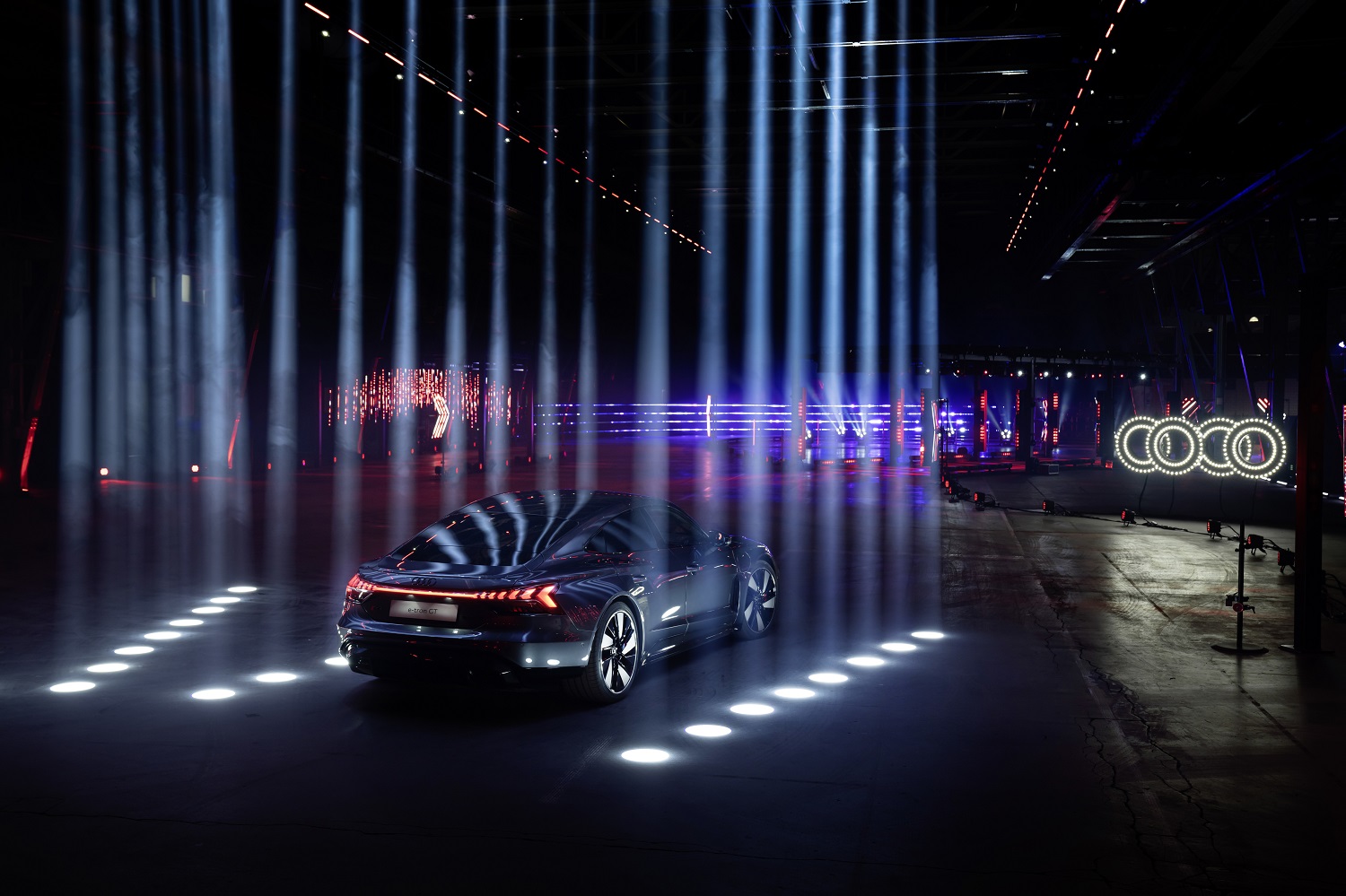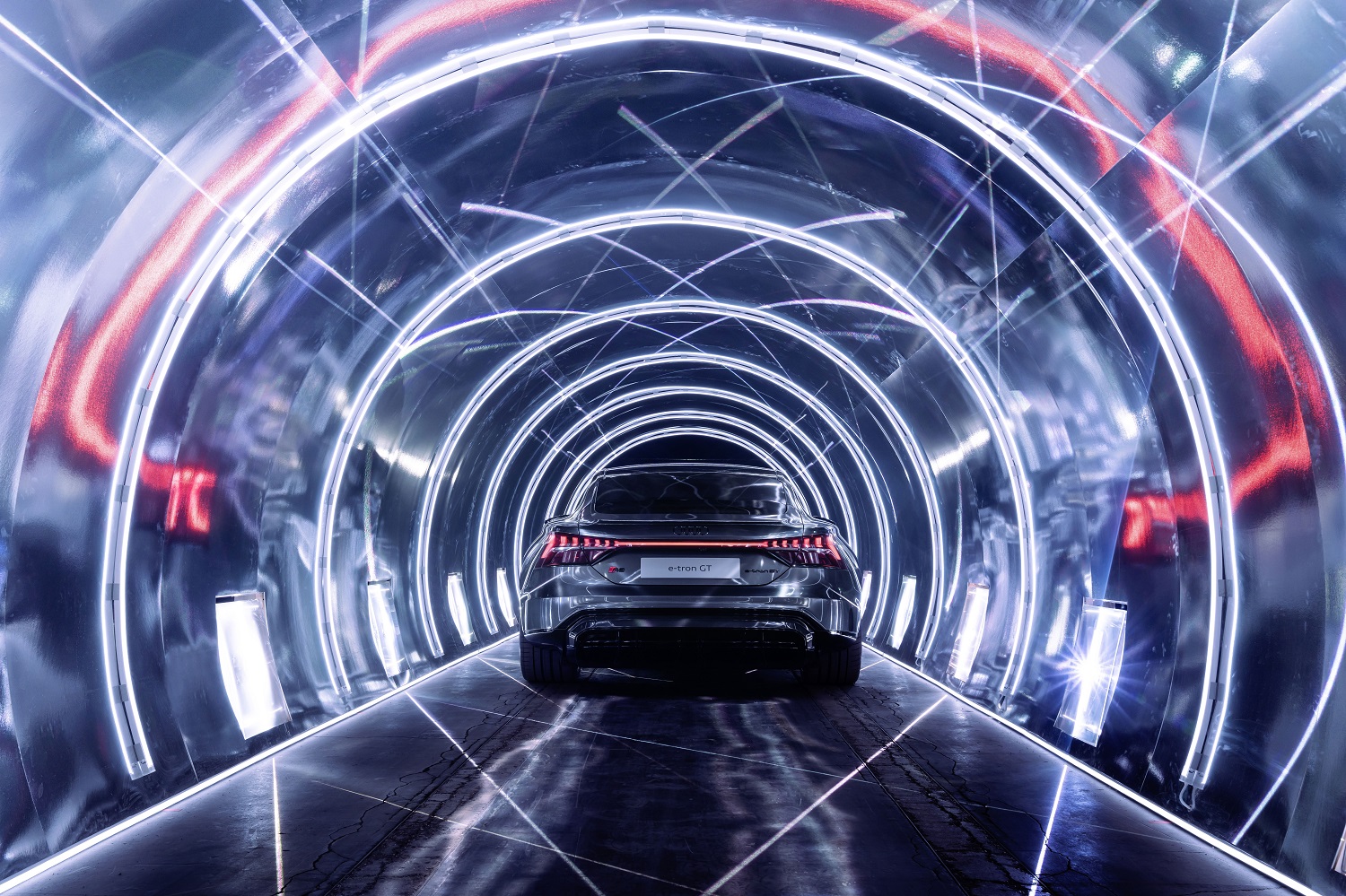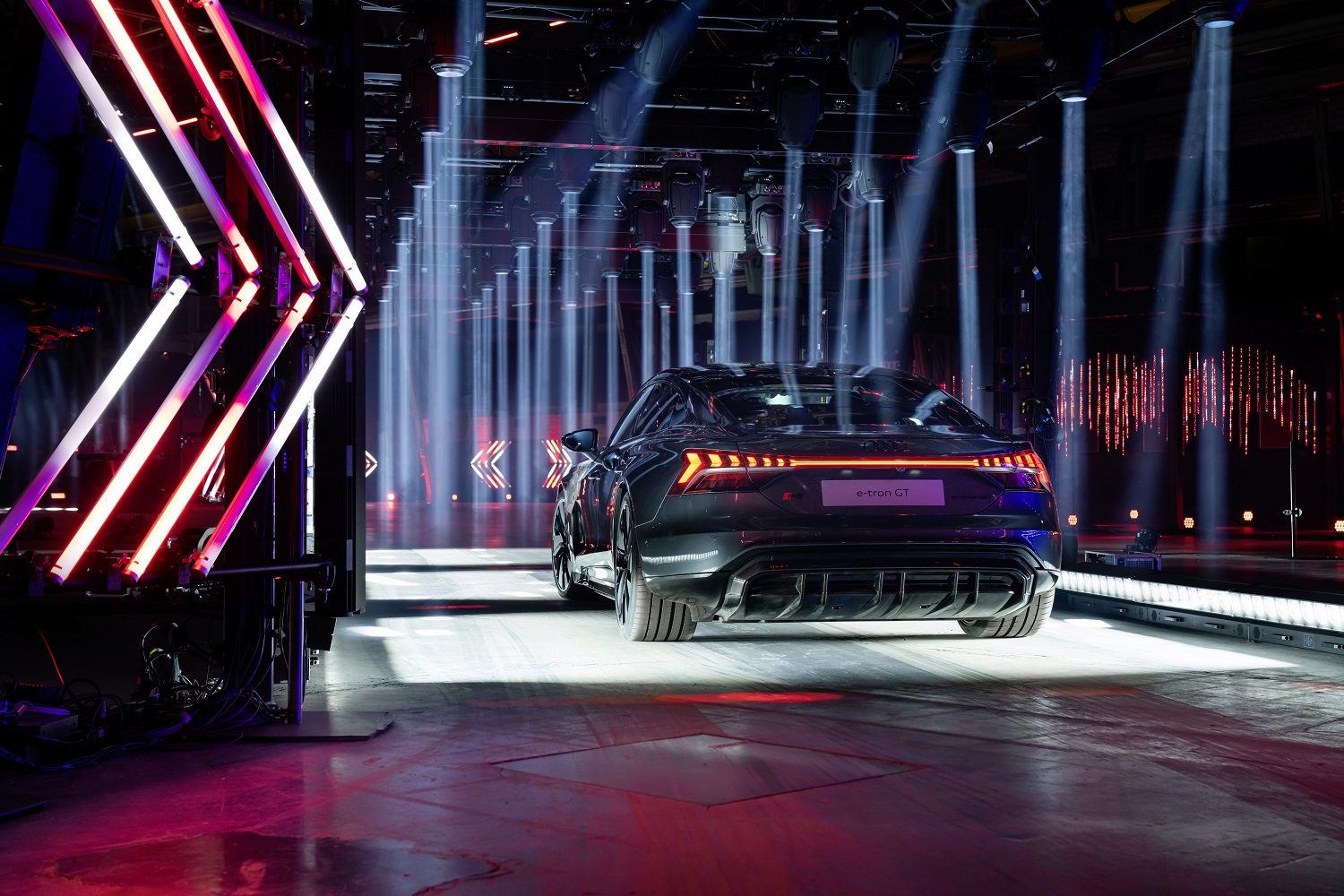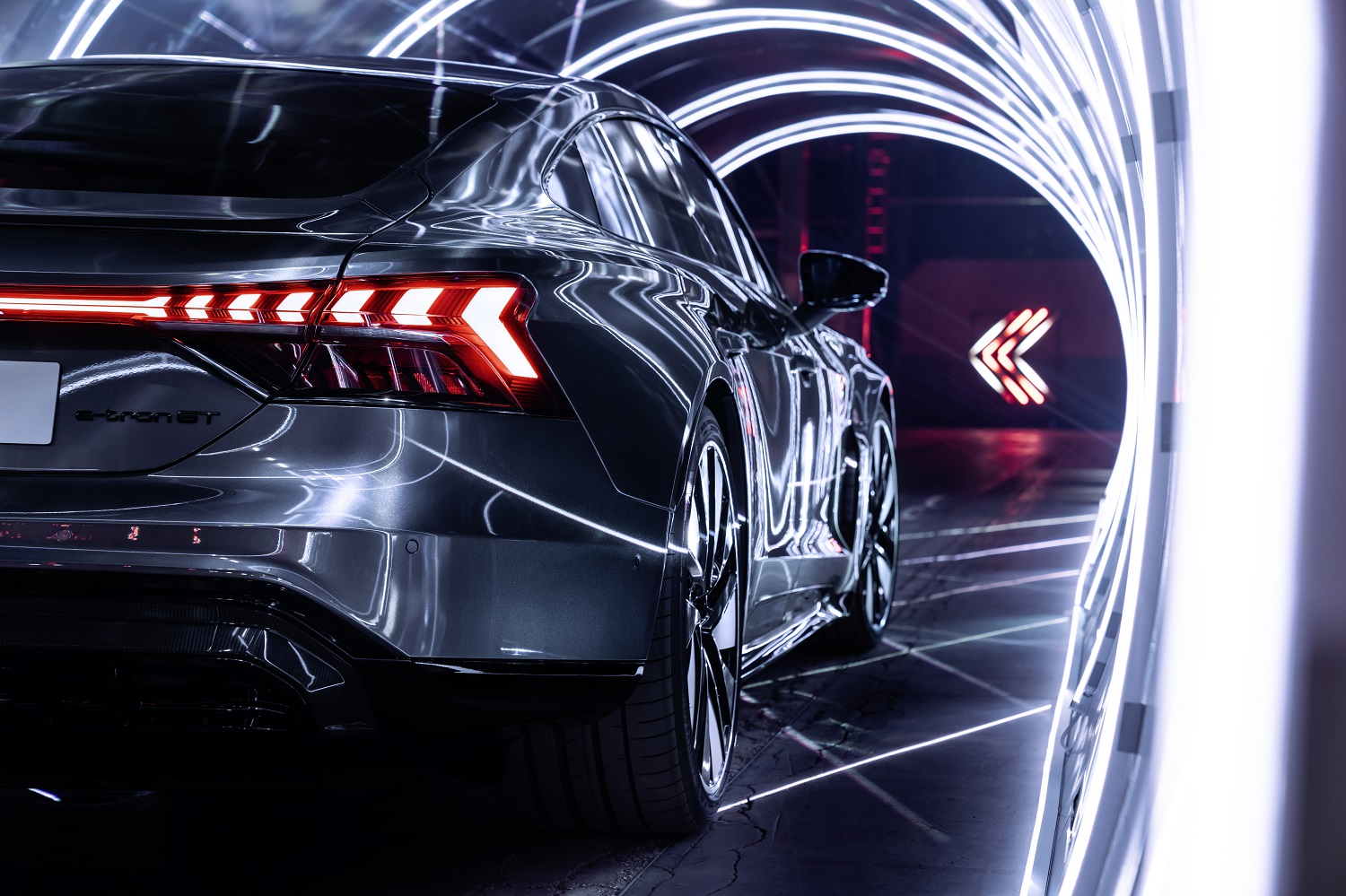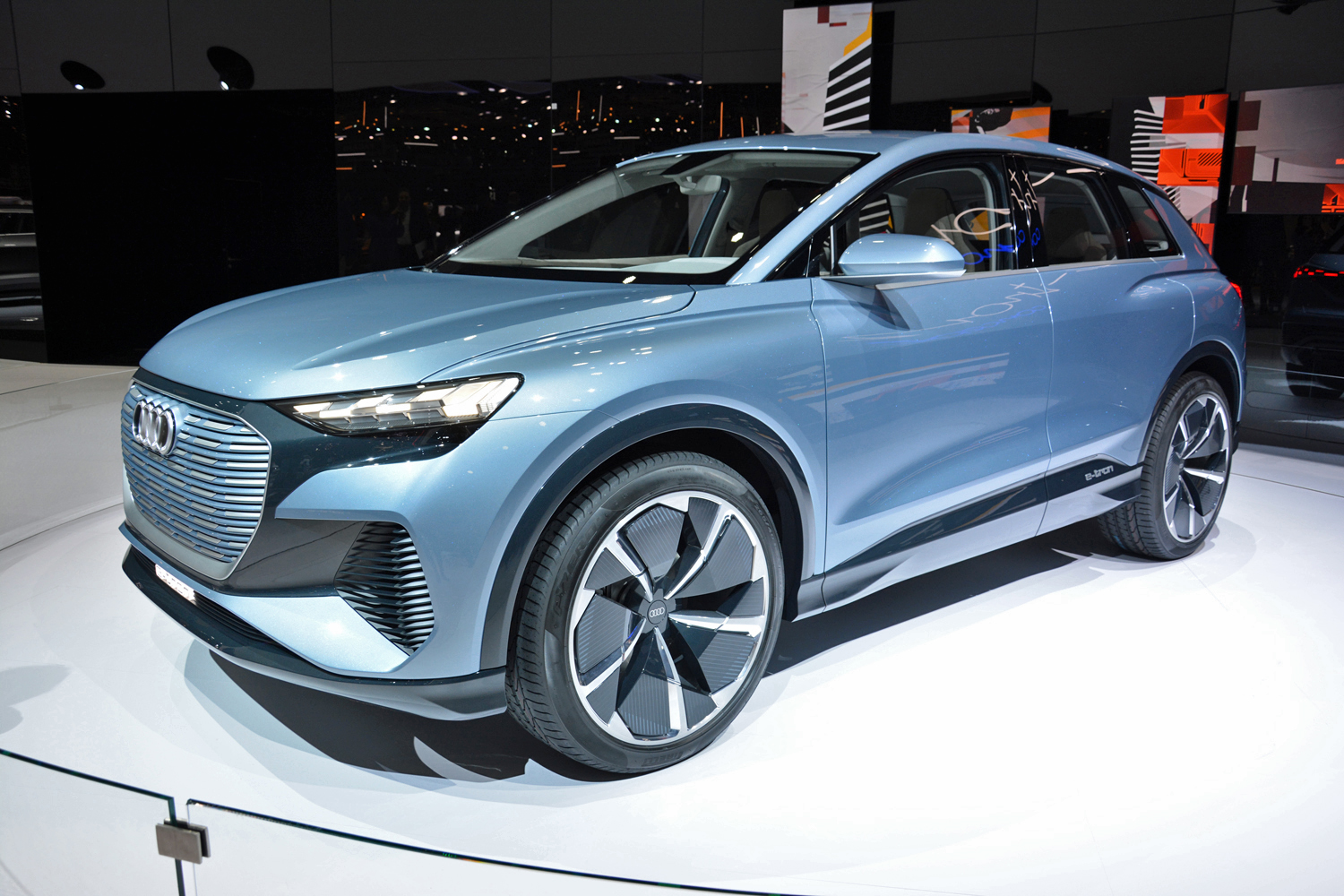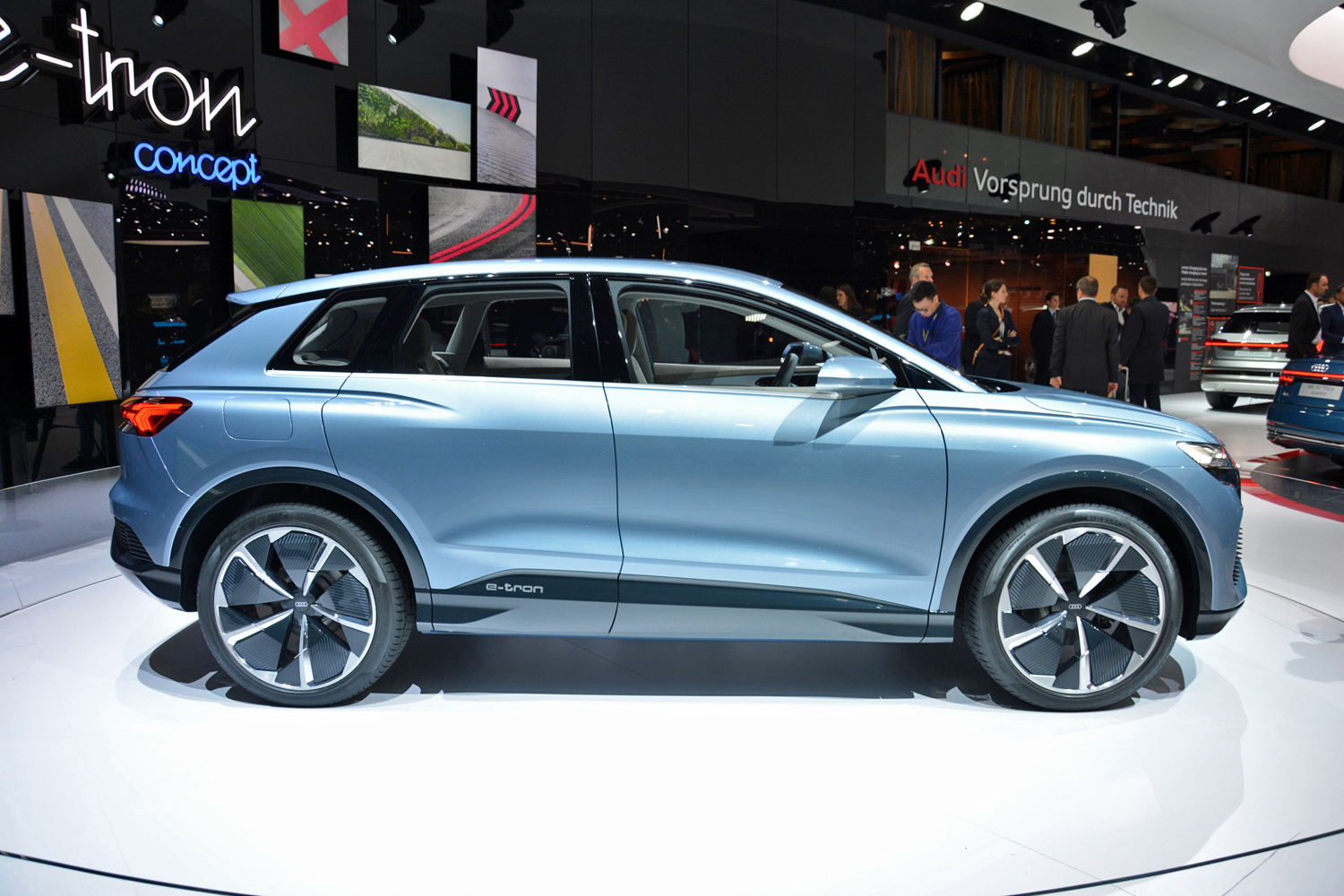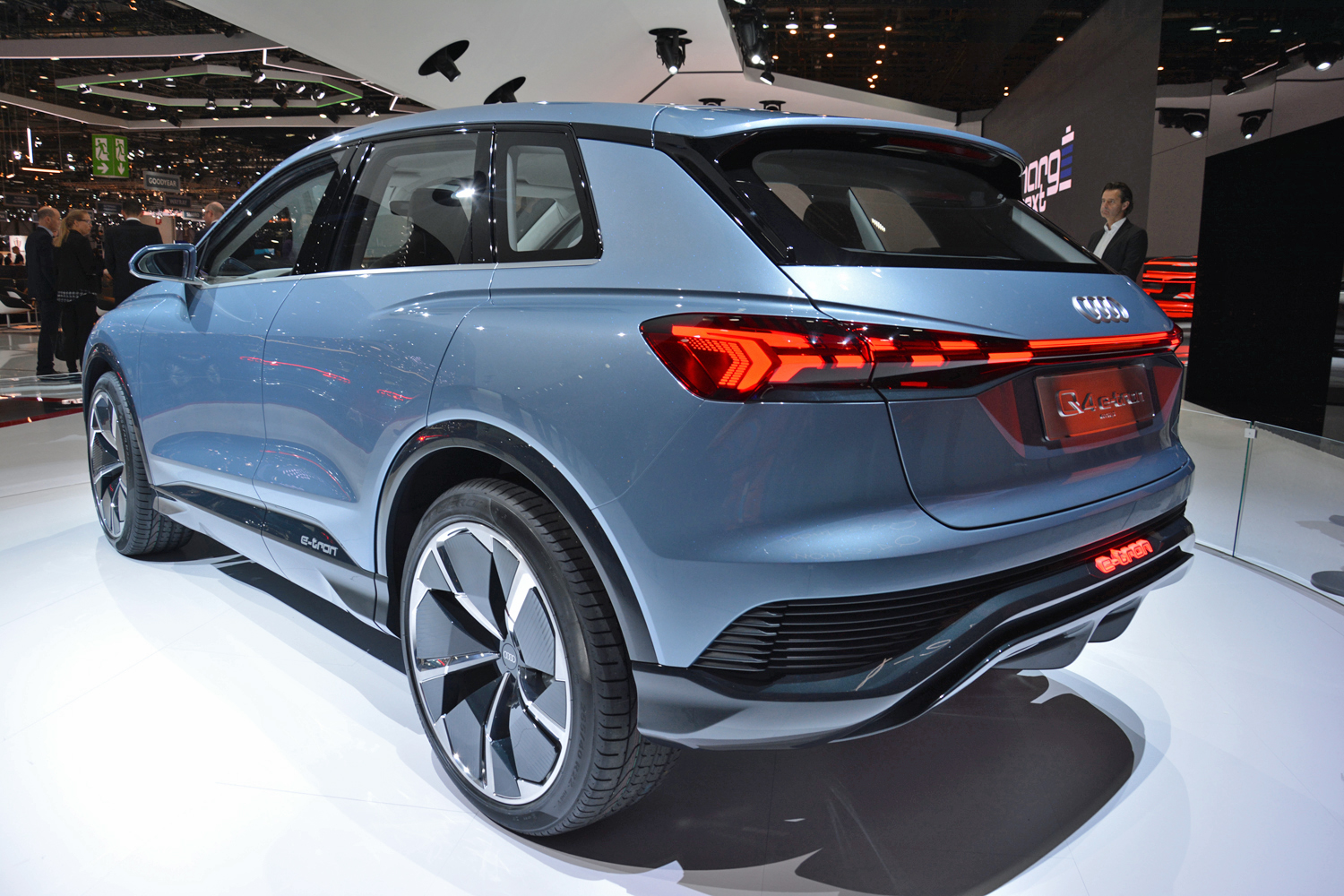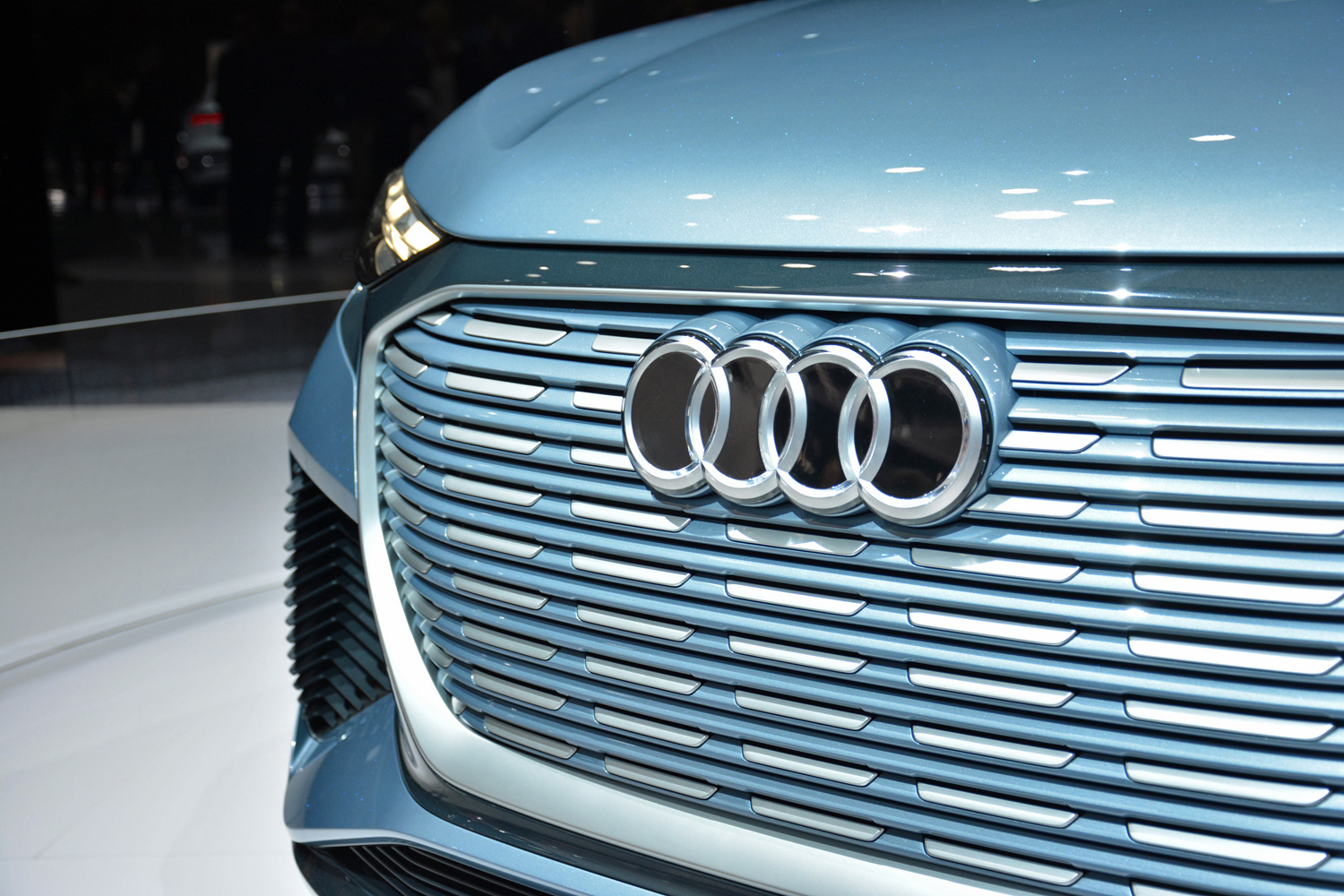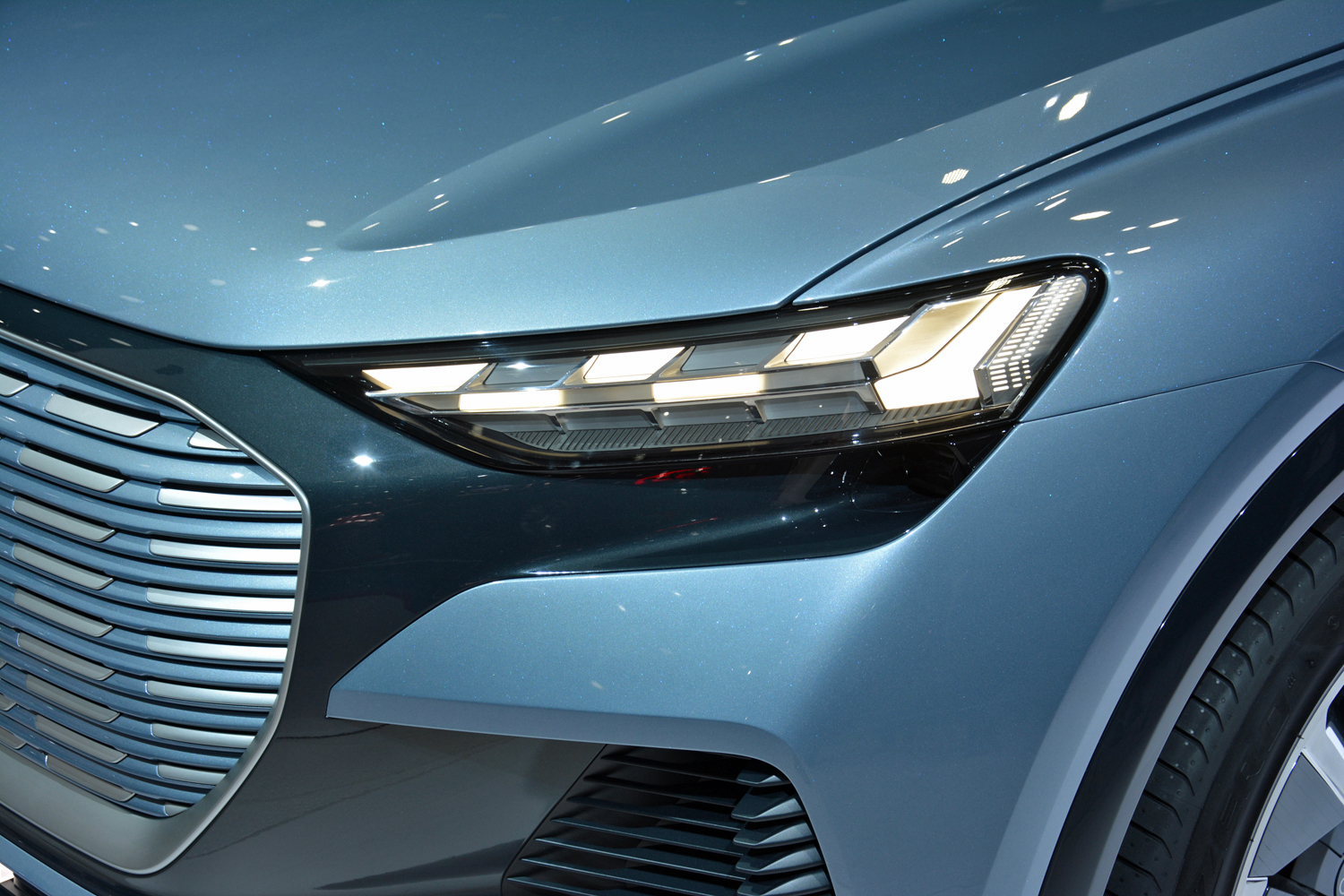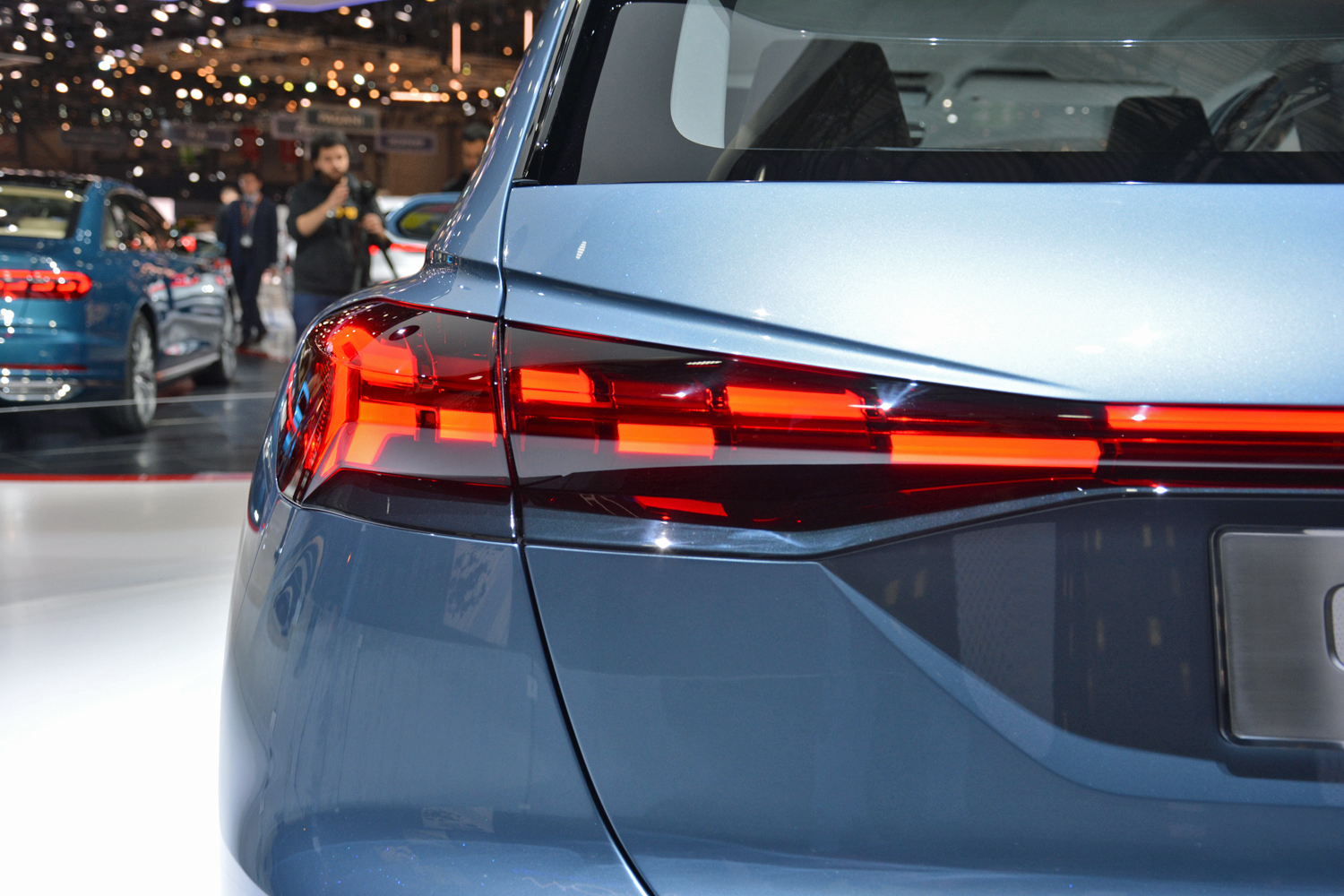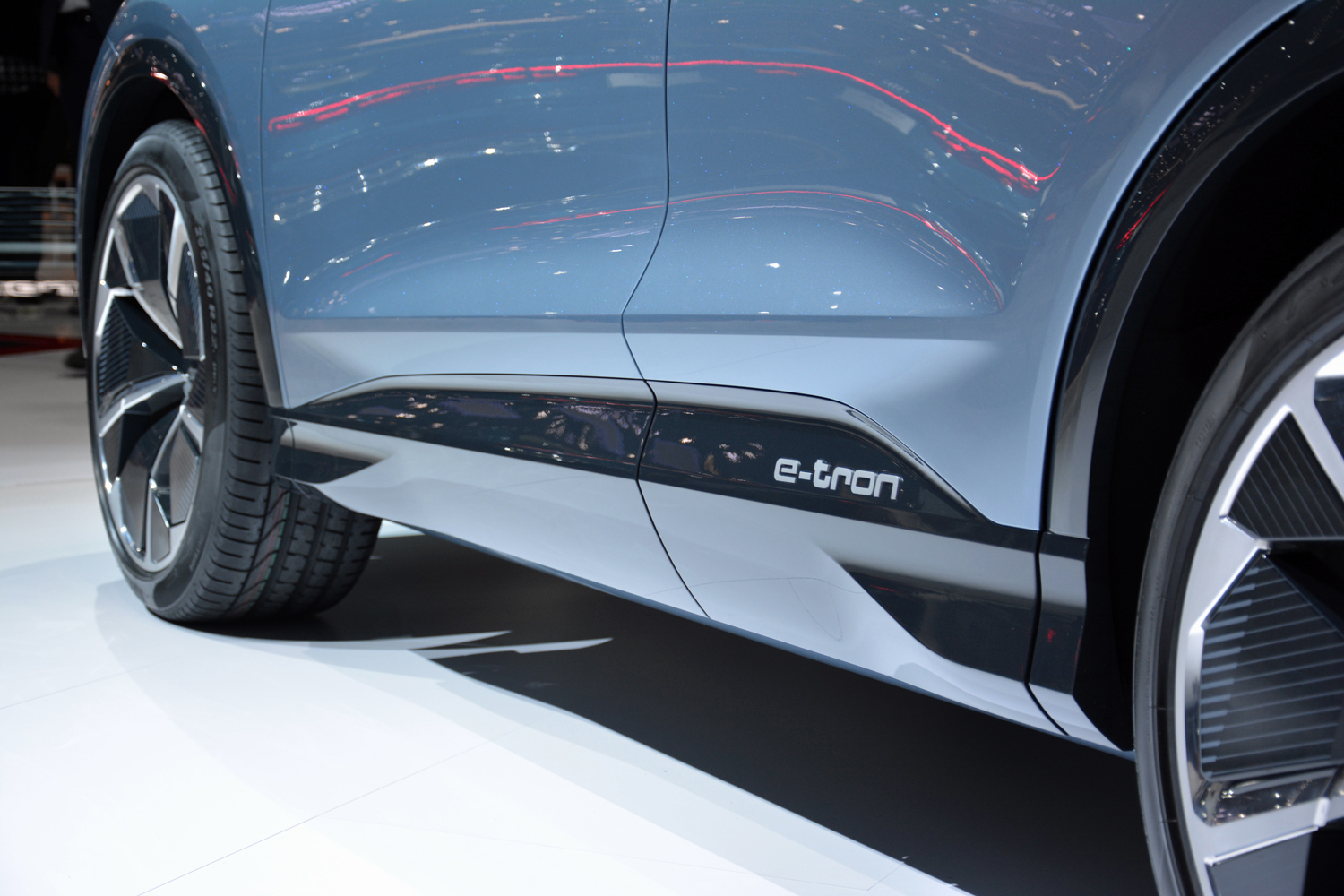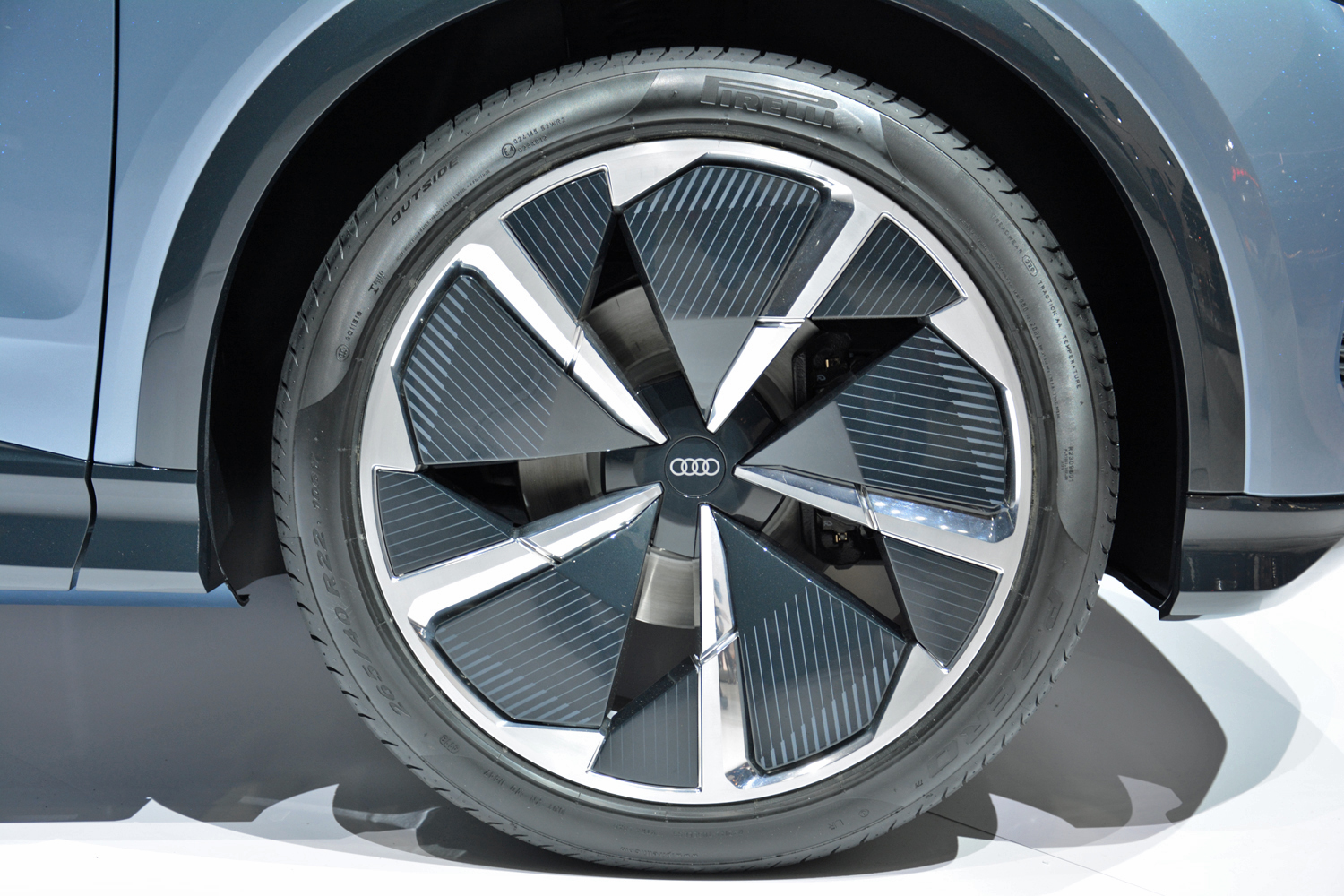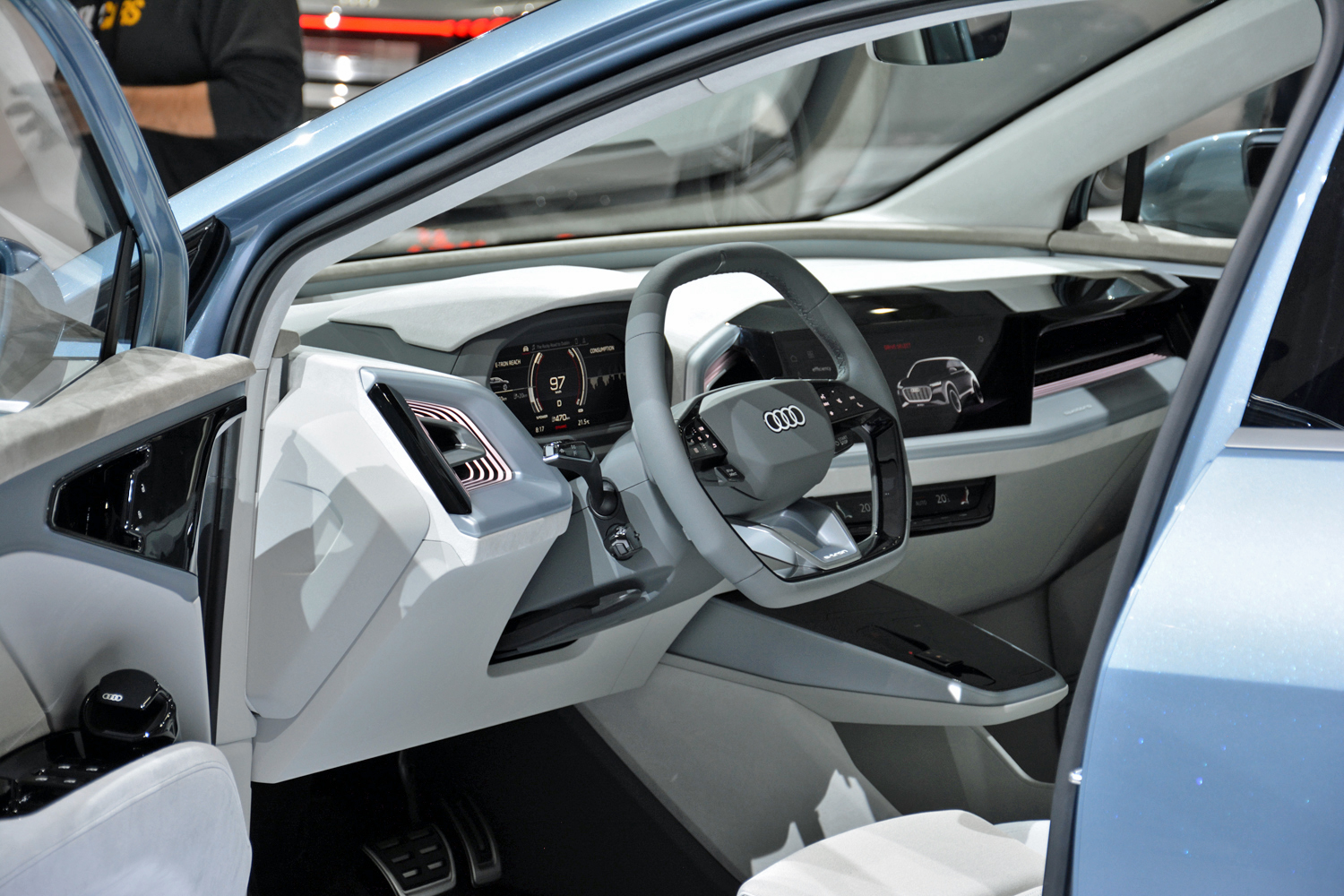Audi traveled to the 2018 edition of the Los Angeles auto show to introduce a head-turning concept called E-Tron GT. Shortly after the unveiling, we learned that the sedan would reach production without major changes, and the company kept its promise. Unveiled online, the electric 2022 E-Tron GT is just as striking as the concept.
On a secondary level, it brings full electrification to the Audi Sport range for the first time. It’s proudly positioned as one of the division’s flagship models, and it blazes the path that future sports cars will follow in the coming years.
Wait, that’s a production car?
Yep! Long, low, and wide, the E-Tron GT’s proportions have barely changed in the past two years. Still closely related to the Porsche Taycan, it looks like it went straight from the drawing board to the assembly line. It’s about as long as an A7 — which is also a gorgeous four-door fastback — but it’s lower and wider. Visually, it’s instantly recognizable as a member of the Audi range thanks in part to a front end characterized by sharp headlights positioned on either side of a hexagonal grille, a styling cue closely associated with the German firm’s design language.
Punched-out wheel arches create a visual link between the E-Tron GT and Audi’s previous high-performance cars, while active aerodynamic parts (including air ducts that automatically close when extra cooling is not needed) help the sedan slip through the air. Stylists and engineers worked hand in hand to balance heritage and forward-thinking tech. Our favorite angle is the rear end, which is defined by the sloping roof line and the extra-wide quarter panels.
Twenty-inch wheels will come standard, and 21-inch alloys will be optional. Another highlight from the list of extra-cost options is a carbon fiber roof, which is offered exclusively on the range-topping RS-badged model. It helps offset the battery pack’s weight, and it lowers the center of gravity for even sharper, more planted handling.
What’s it like inside?
Stylists designed the interior around the driver, so the different switches, buttons, and screens are easy to read and reach. Behind the steering wheel, the driver faces a 12.3-inch digital instrument cluster called Virtual Cockpit in Audi-speak that can be configured to display different menus, and a 10.1-inch touchscreen that runs the MMI Touch Response infotainment system. It’s one of the most user-friendly and straightforward systems on the market.
Sound is a significant part of what makes driving a high-performance car awesome; whether it’s the low burble of a V8, the banshee-like scream of a naturally-aspirated V12, or the high-pitched whine of a turbocharger, enthusiasts love to hear speed. Audi Sport knows this, so hushing the E-Tron was out of the question. It composed sounds that vary depending on parameters like the speed and the driving mode selected. The system consists of two control units plus an amplifier embedded in the trunk, and a pair of speakers (one for the outside, one for the interior).
What’s underneath?
The entry point into the range is the standard E-Tron GT. It’s equipped with two electric motors (one per axle) that join forces to zap the four wheels with about 469 horsepower and 464 pound-feet of torque, though an overboost function cranks the first figure up to 522. Hitting 60 mph from a stop takes 3.9 seconds, according to Audi, and the through-the-road Quattro system helps ensure the cavalry doesn’t overwhelm the tires.
If that’s not enough, the range-topping RS E-Tron GT uses a more powerful rear electric motor to put 637 horses and 612 pound-feet of twist under the driver’s right foot when the aforementioned overboost function kicks in. That’s enough for a 3.1-second sprint from zero to 60 mph, and a top speed of 155 mph. Put another way, the RS variant is as quick in a straight line as the R8, which is powered by a fantastically sonorous naturally-aspirated V10 engine.
Interestingly, the GT features a two-speed automatic transmission. Some electric cars are equipped with a single-speed gearbox, but Audi explained it added an extra speed to avoid having to compromise between acceleration and range. The first gear is shorter for quicker sprints off the line; the second gear is taller for long highway runs.
Credibly ticking the gran turismo box requires building a car that’s comfortable, fast, and engaging to drive. Audi leveraged technology to hit all three targets. It installed an air suspension system that offers a wider range between the comfort and sport settings, for example. It also developed an all-wheel steering system that makes the GT more nimble on a mountain road and more stable at high speeds. Turning the rear wheels makes it easier to park, too.
What about the high-voltage bits?
Both versions of the E-Tron ride on a 93.4-kilowatt-hour lithium-ion battery pack, and they use the same basic 800-volt electrical architecture as the Taycan. Audi expects the 5,060-pound E-Tron GT will return 238 miles of driving range, and it predicts the 5,139-pound RS E-Tron GT will be good for 232 miles, but both figures are preliminary estimates. EPA figures won’t be released until closer to the sedan’s on-sale date. The company also noted that a DC fast-charger can power the battery from five to 80% in about 23 minutes, which is about the time it takes to order and eat a burger. Alternatively, users will have the possibility of charging the E-Tron GT at home, or by plugging it into a public charging stations. They’ll be able to take advantage of the growing Electrify America network, too.
Porsche puts a 93.4-kilowatt-hour battery under most variants of the Taycan, too, and that’s not a coincidence. Developing electric technology remains extremely expensive, and sharing parts (like the battery) is an excellent way to leverage the benefits of economies of scale. Most of the common bits are tuned differently, however.
“Our focus was to create a powerful and daily-usable GT. We are more focused on daily usability, on nailing the typical GT feeling. Porsche is more focused on cutting seconds from its lap times,” Audi told Digital Trends.
What’s next?
Audi dealers across the United States will begin receiving the 2022 E-Tron GT in the summer of 2021. At launch, the range will include three variants called Premium Plus, Prestige, and RS, respectively. Pricing starts at $99,900 for the Premium Plus, $107,100 for the Prestige, and $139,900 for the RS. None of these figures include options, the mandatory destination charge, or the federal and state credits that some buyers will be eligible to claim.
Electrification will continue to spread across the Audi range in the coming years. The firm will notably release the production version of the electric Q4 E-Tron concept (shown above) that we discovered at the 2019 edition of the Geneva auto show, back when there was a Geneva show to discover cars at. Details remain few and far between, but we don’t expect the design study will change significantly as it transitions from a concept to a production model. It will spawn a sportier, Sportback-badged electric crossover with a fastback-like roof line shortly after it goes on sale.
Sister company Porsche is preparing to launch a family-friendly station wagon based on the Taycan, so it stands to reason that Audi could build an E-Tron GT Avant. Will it? We asked, and Audi told us it’s too early to tell.
